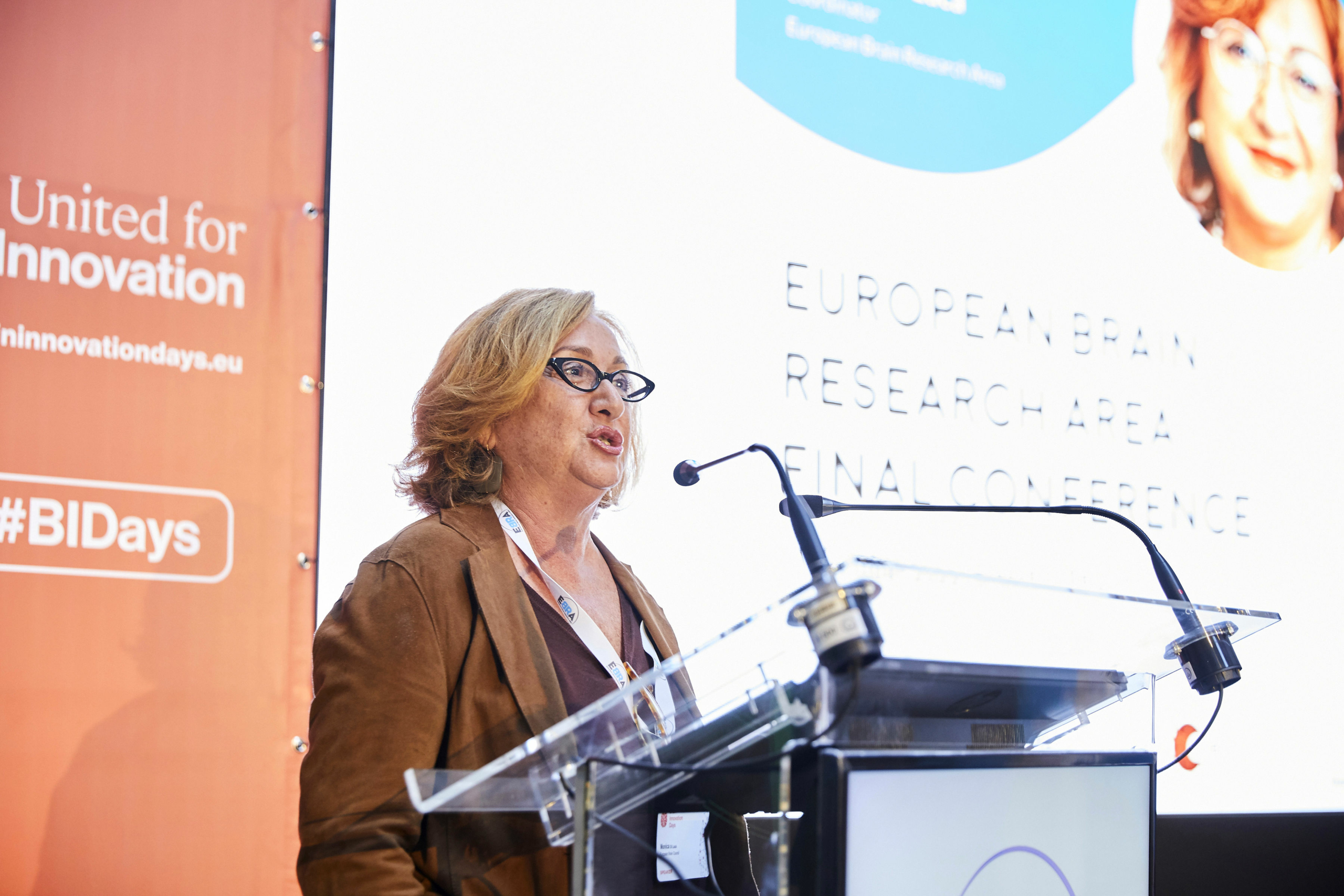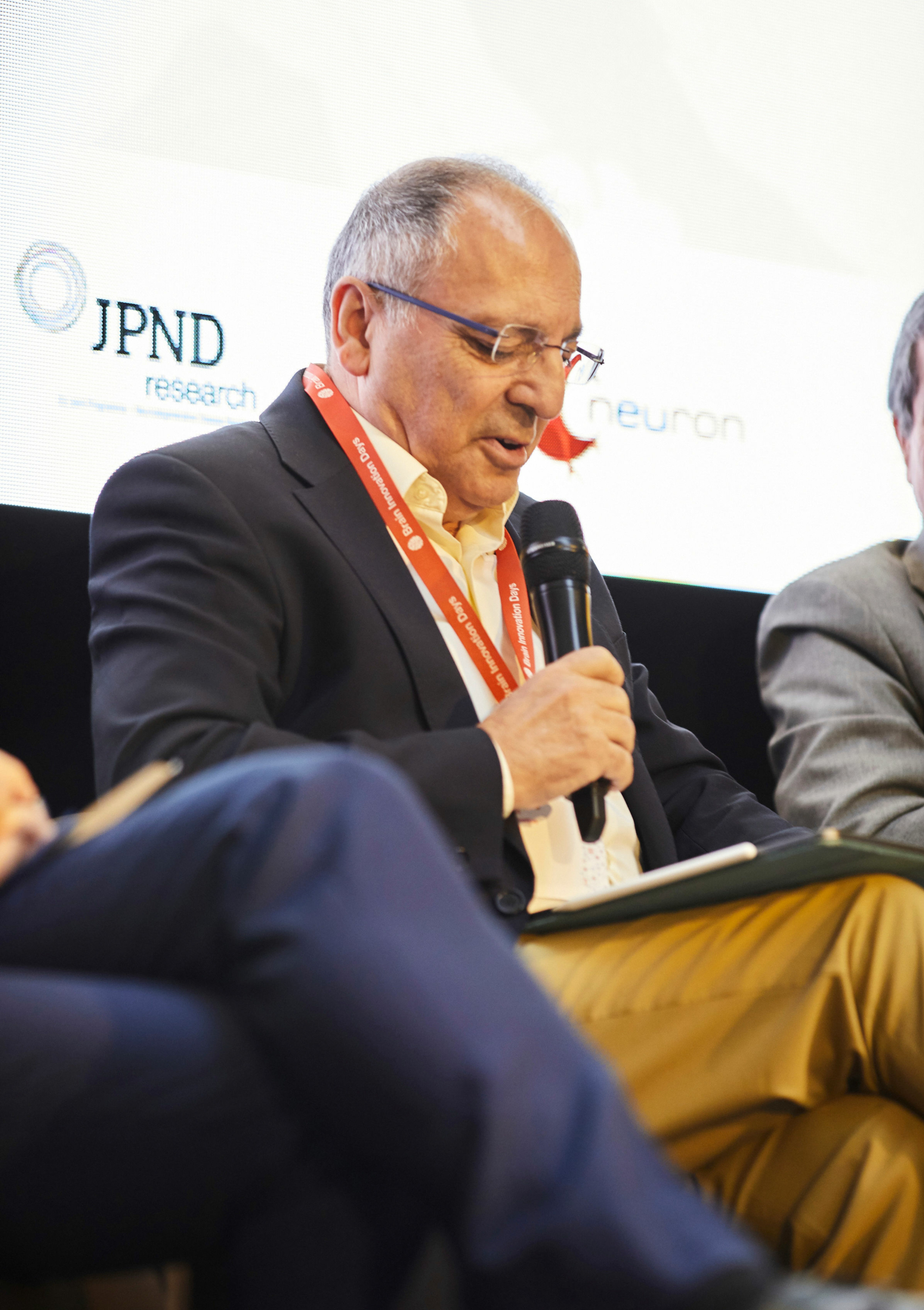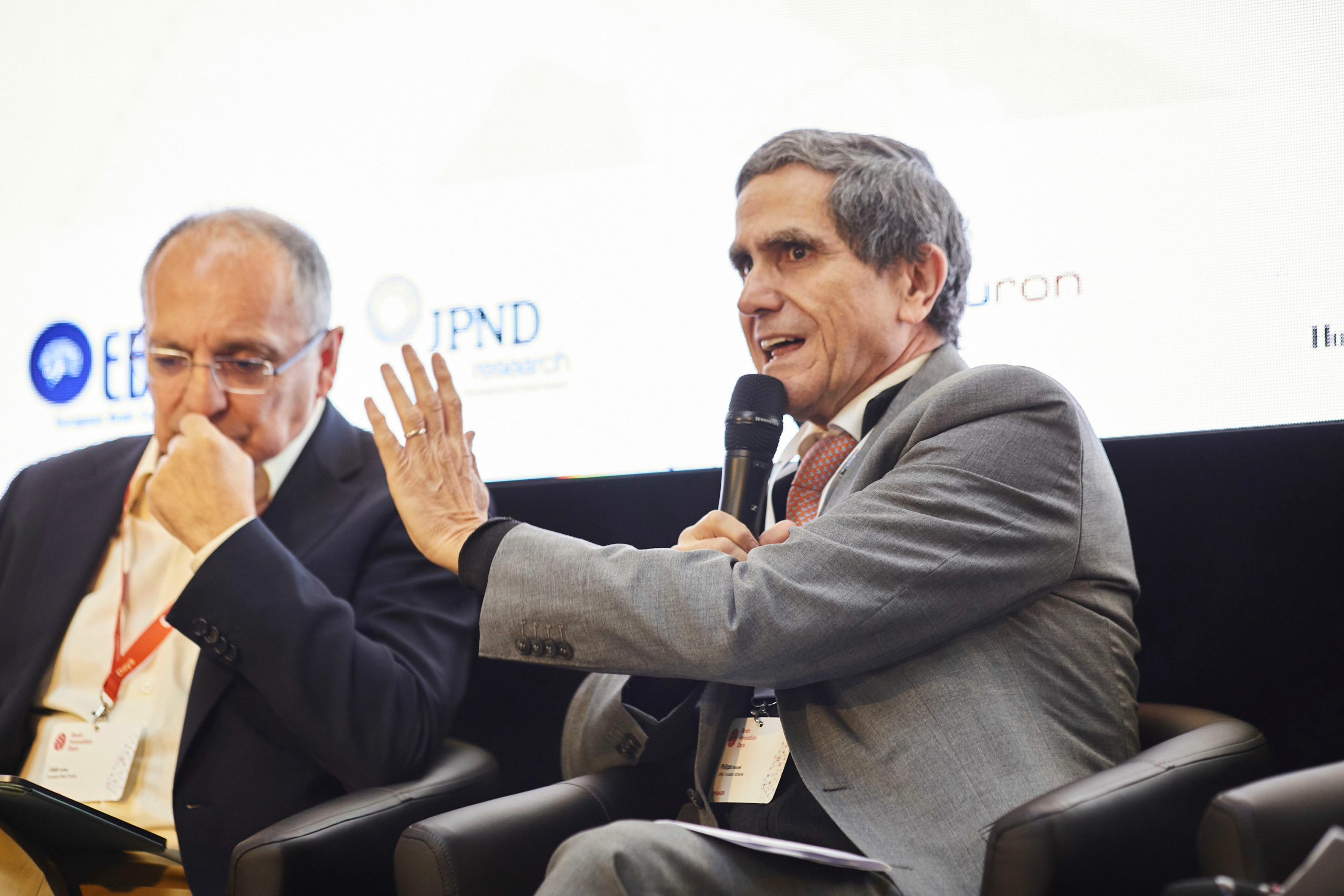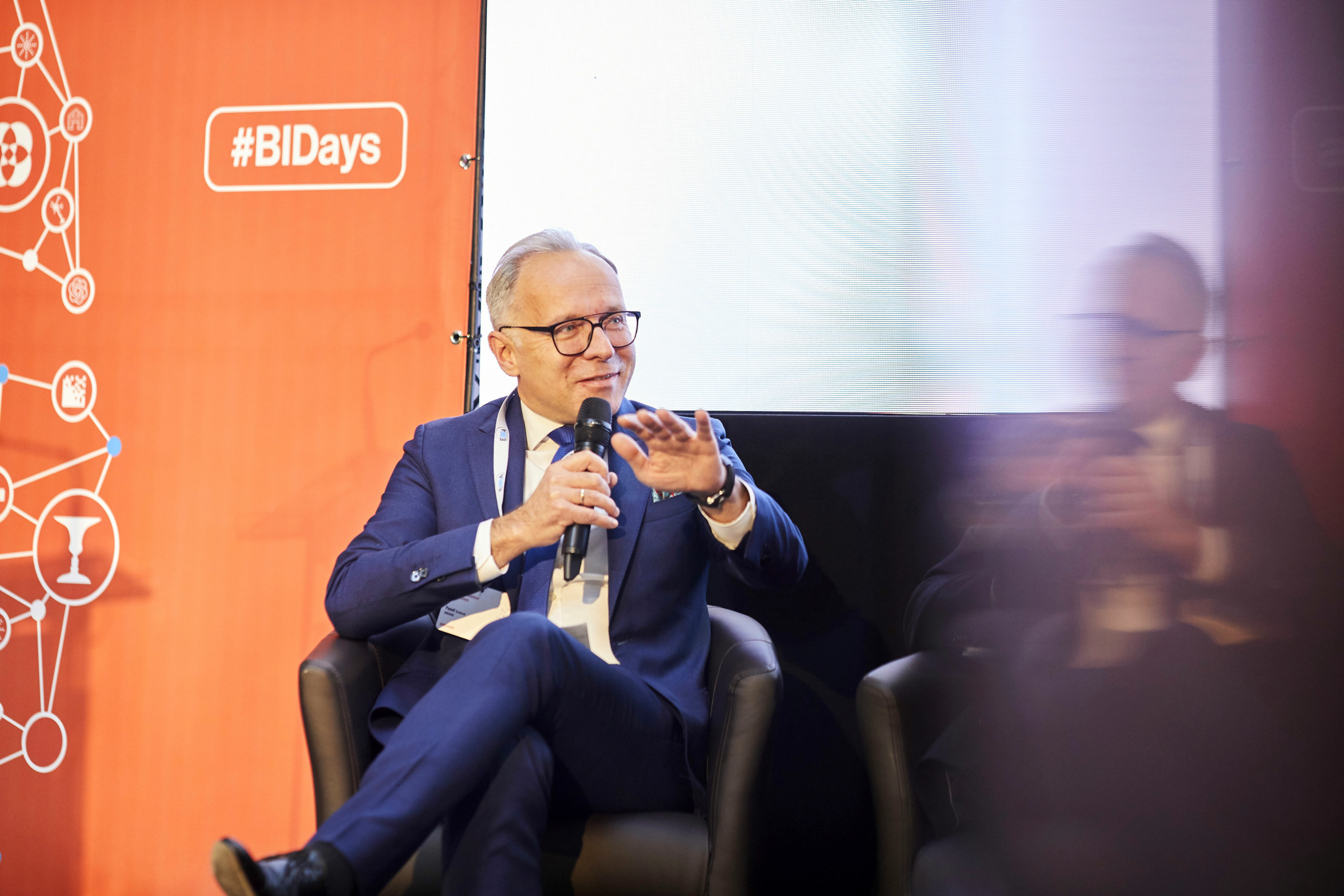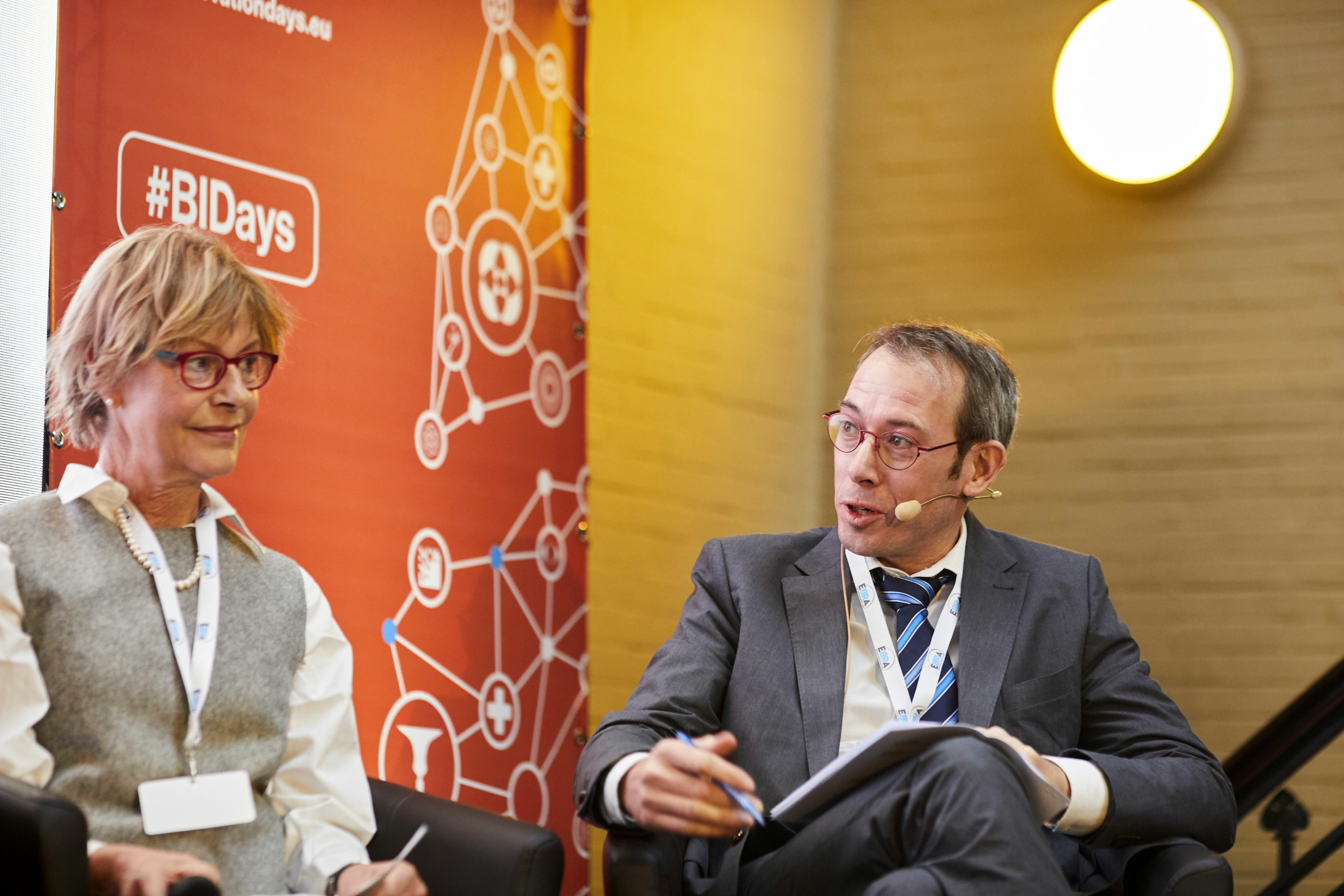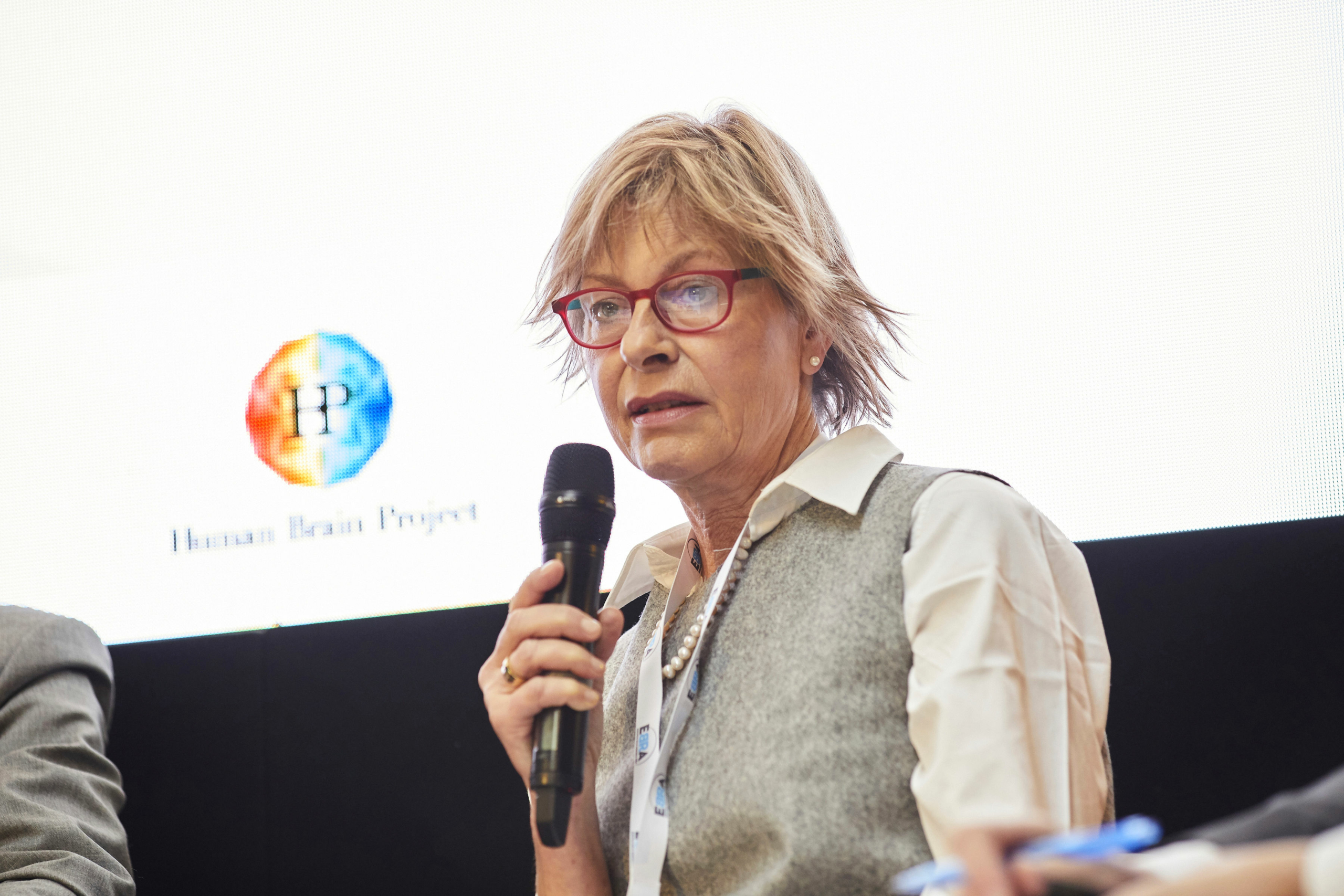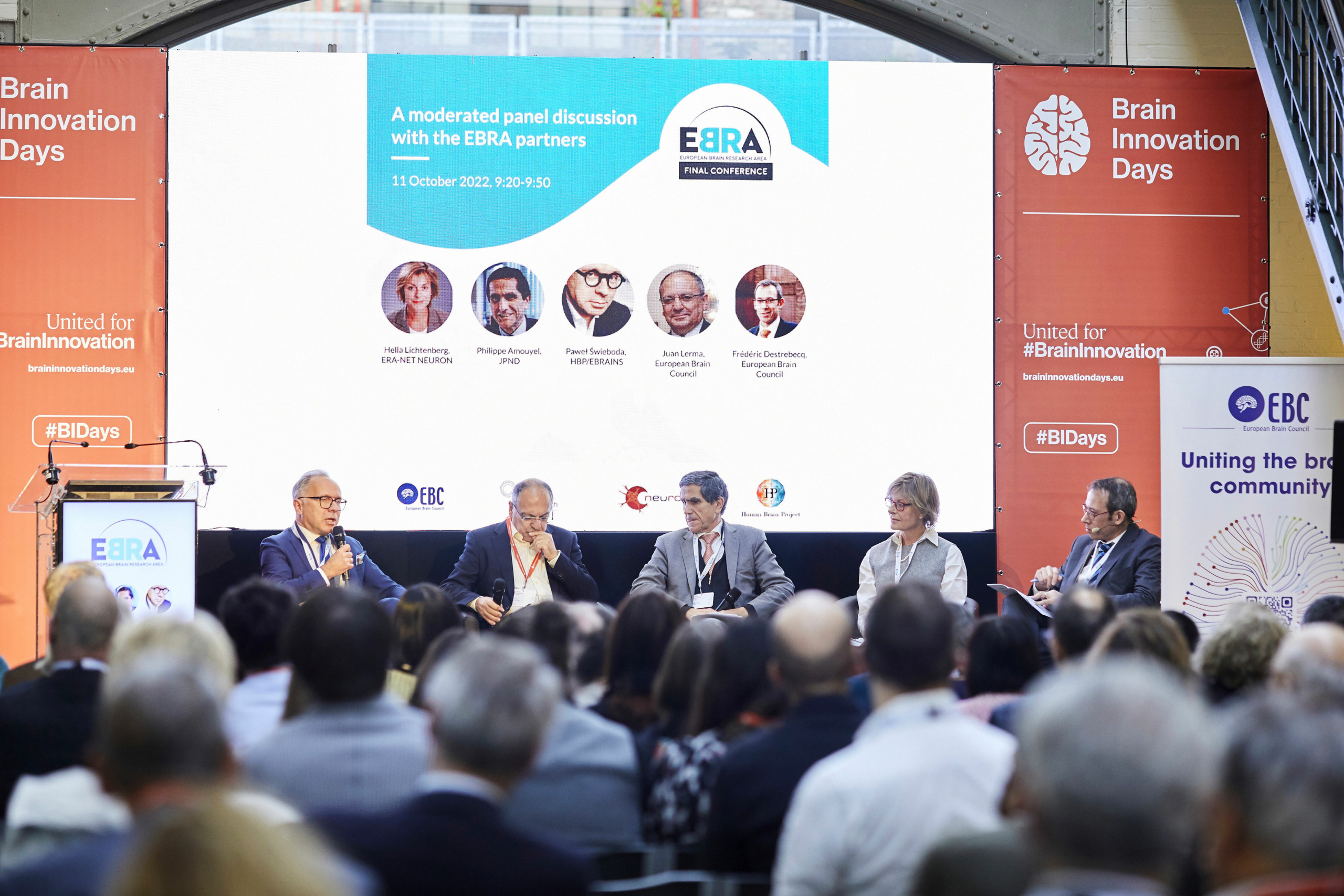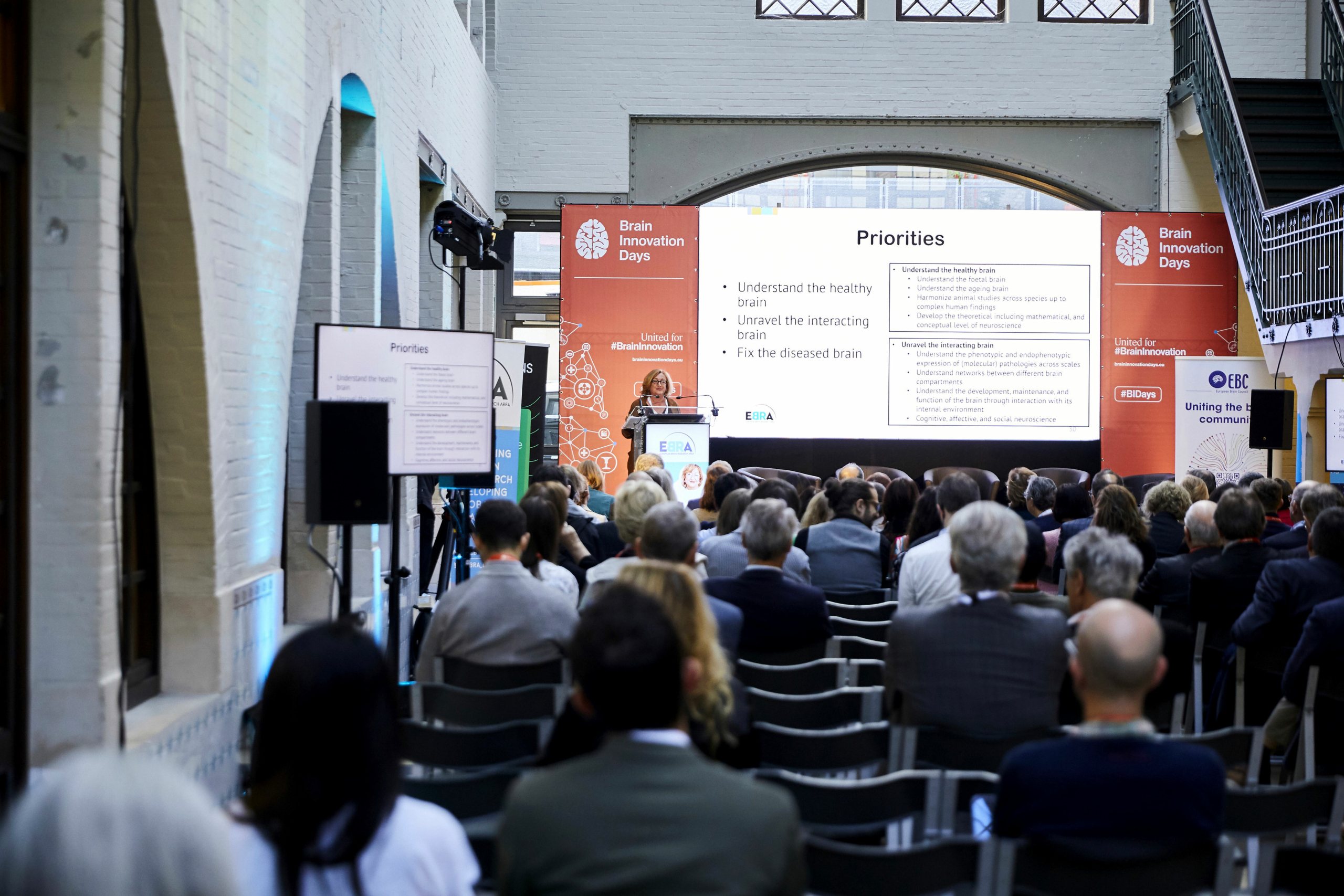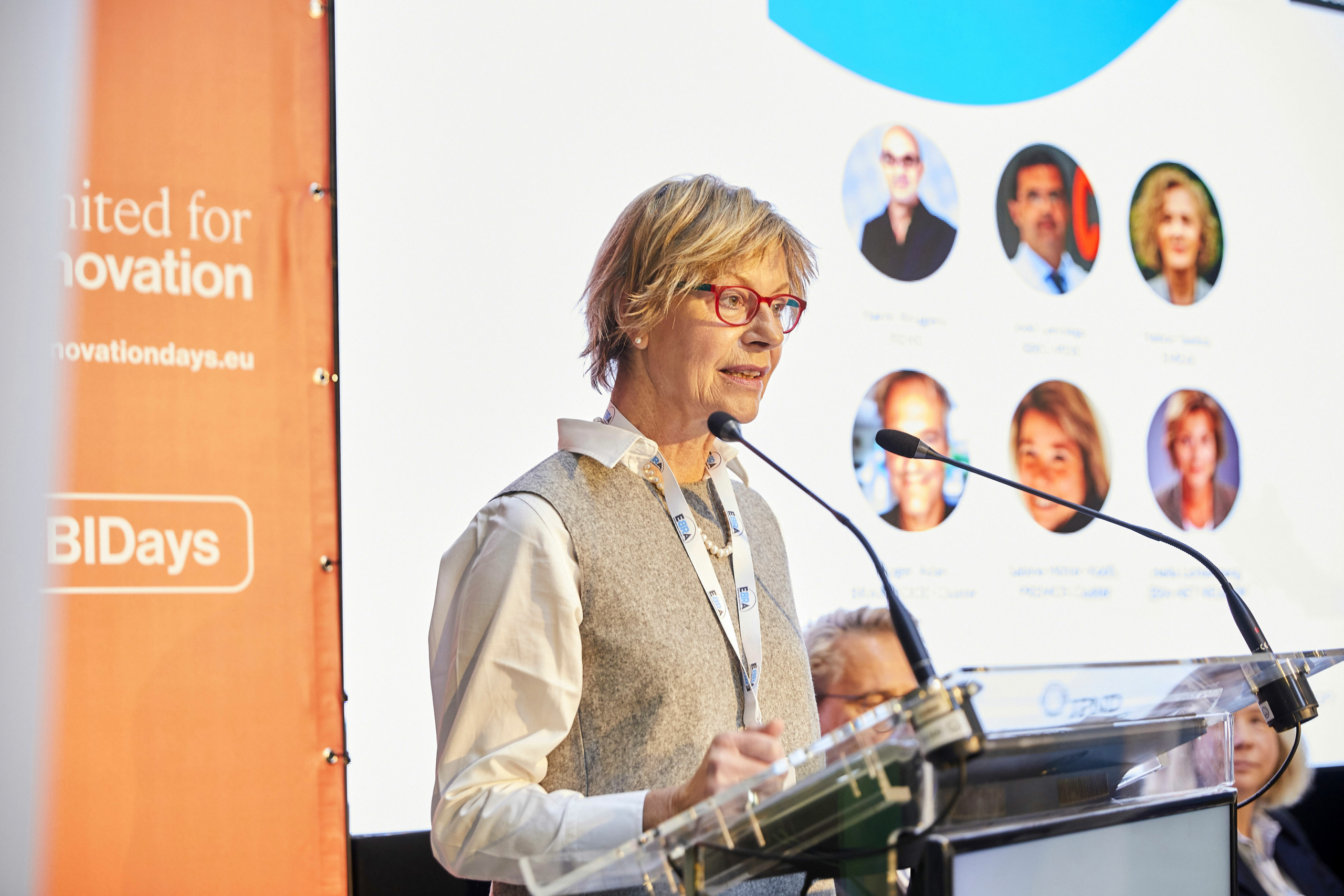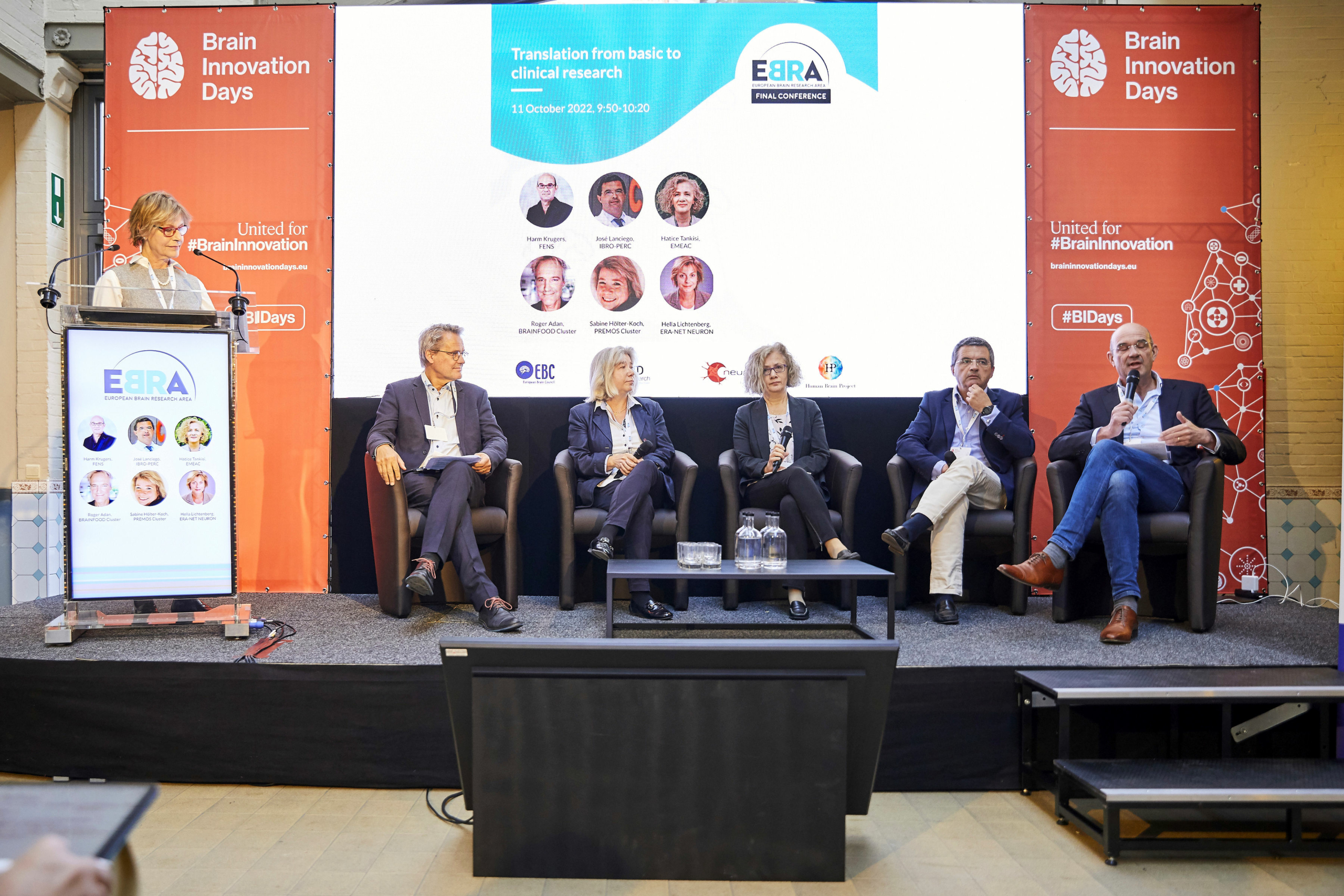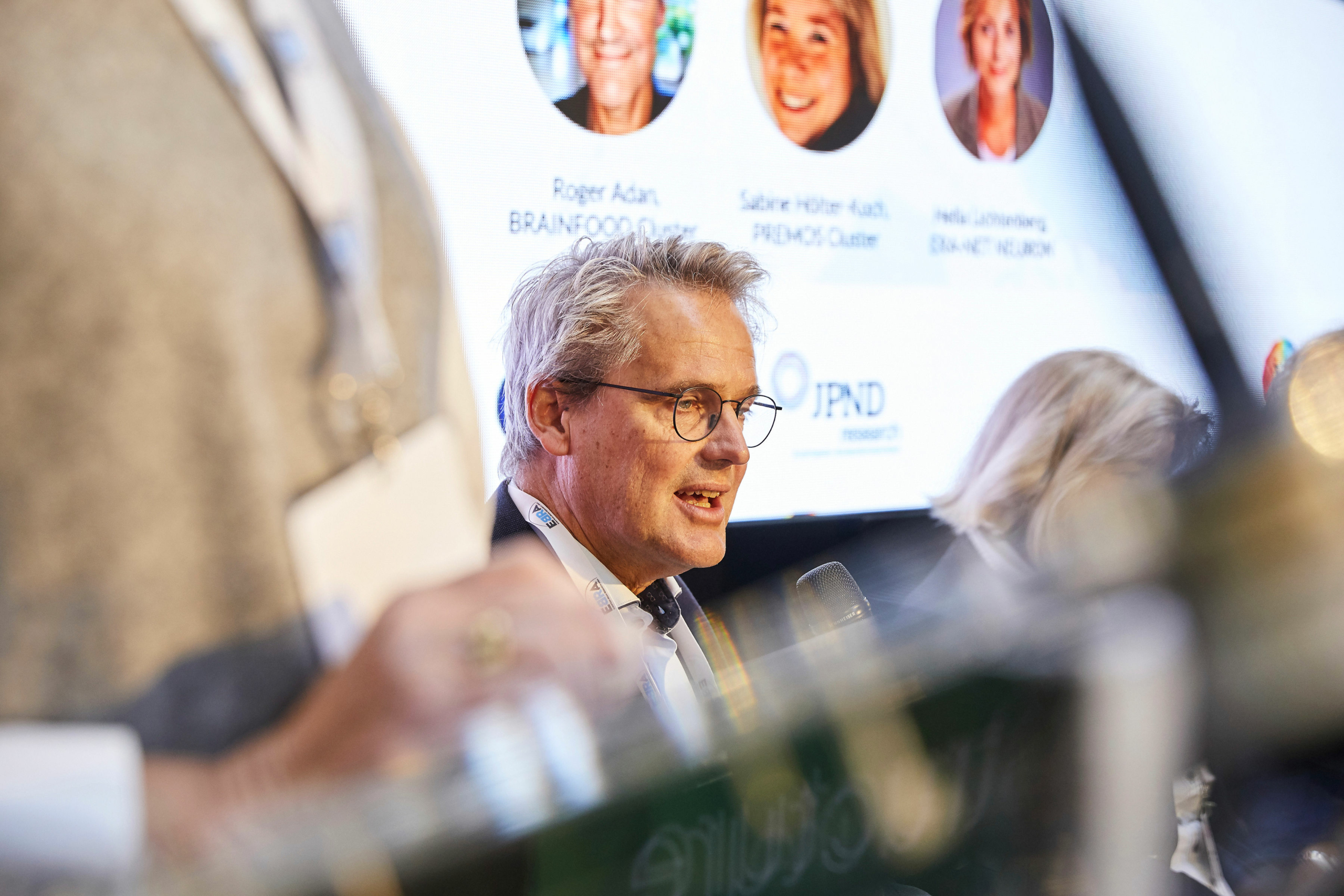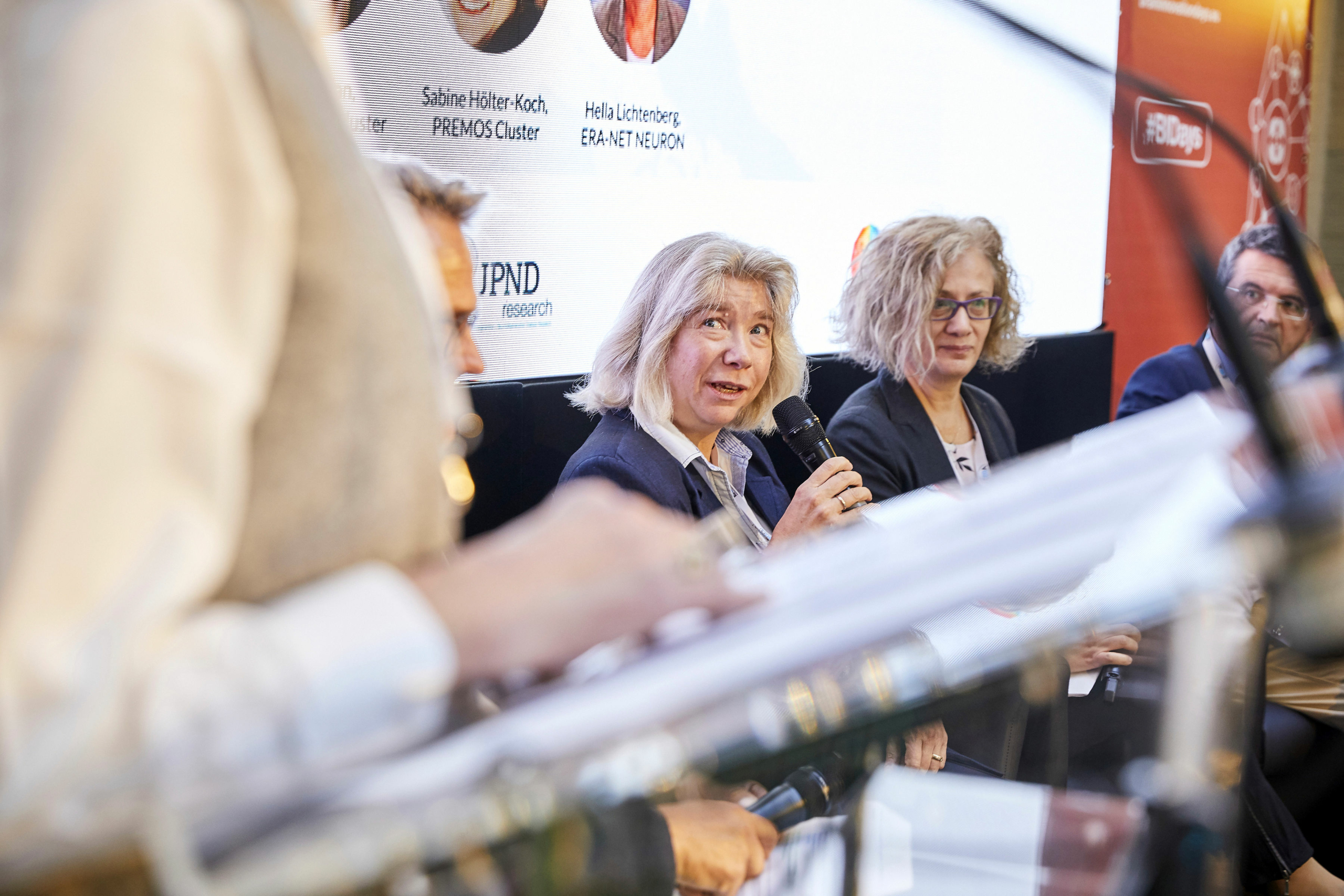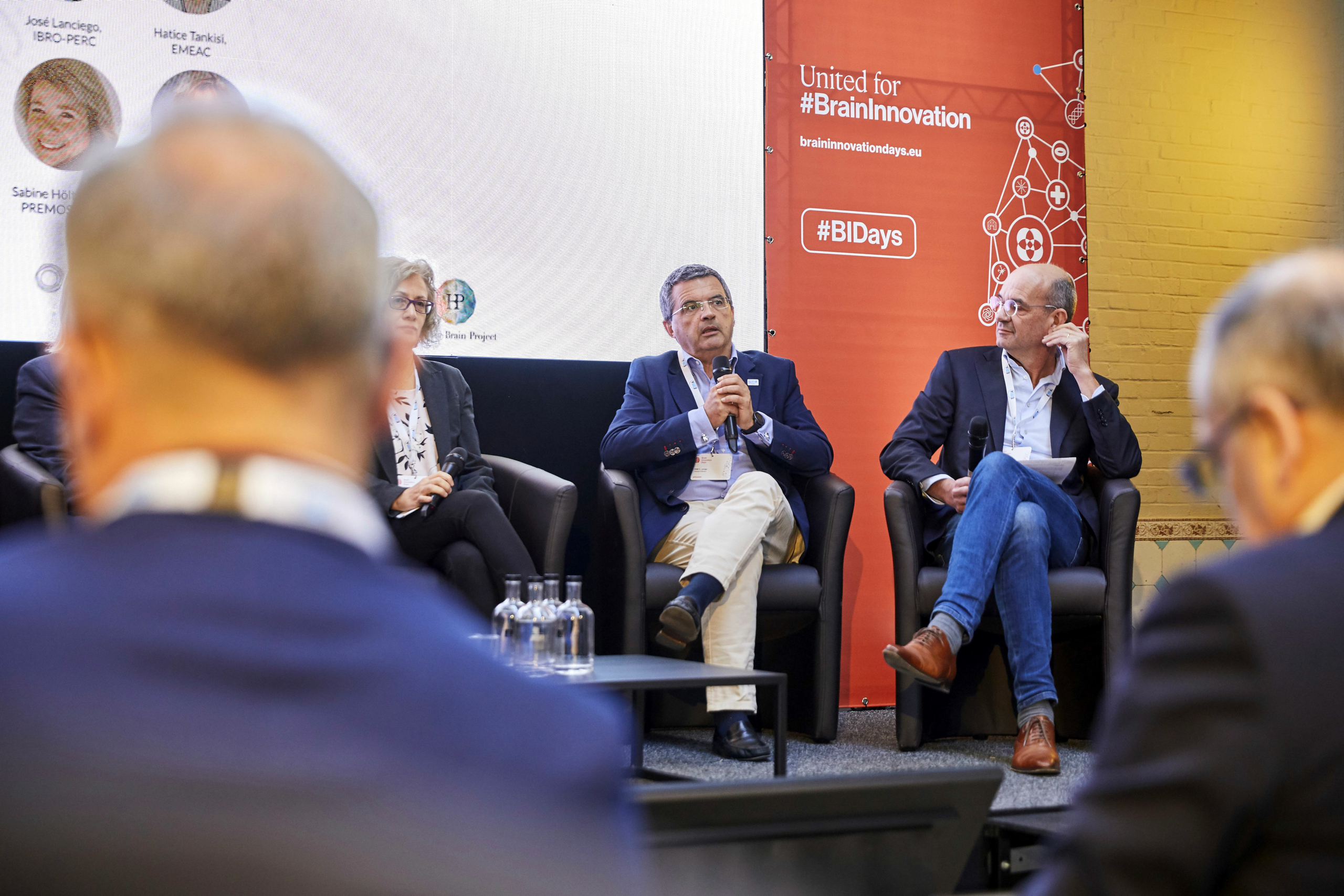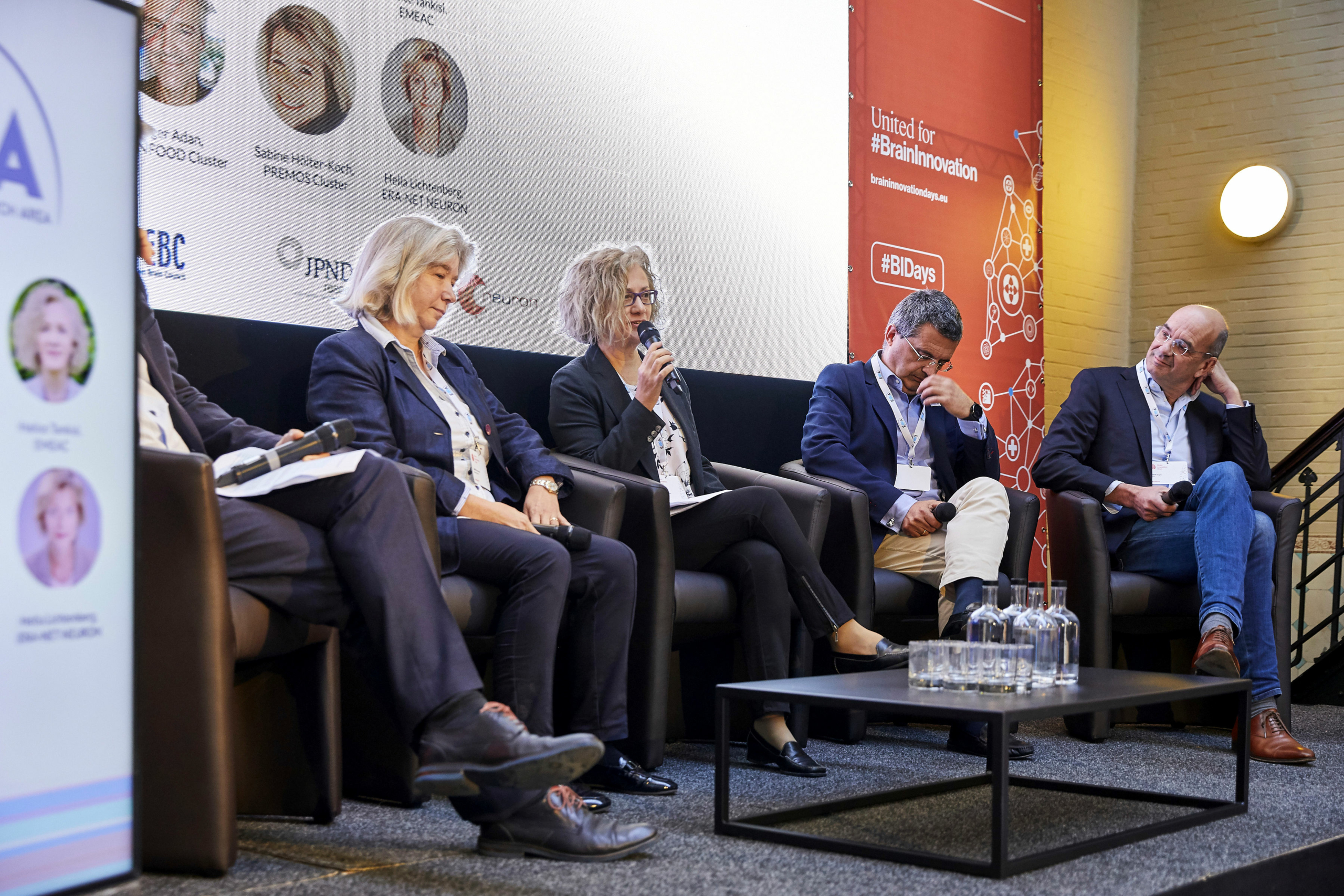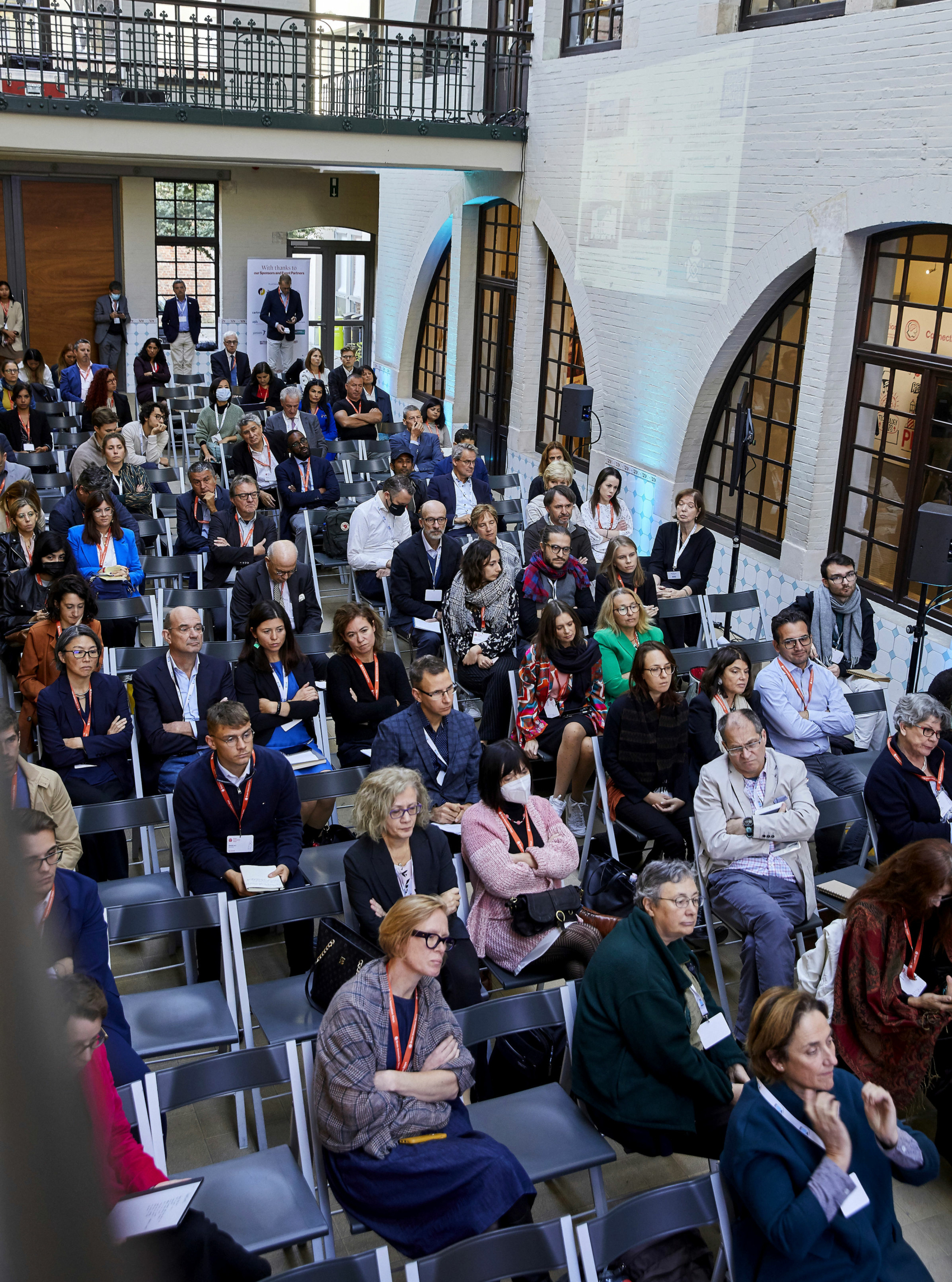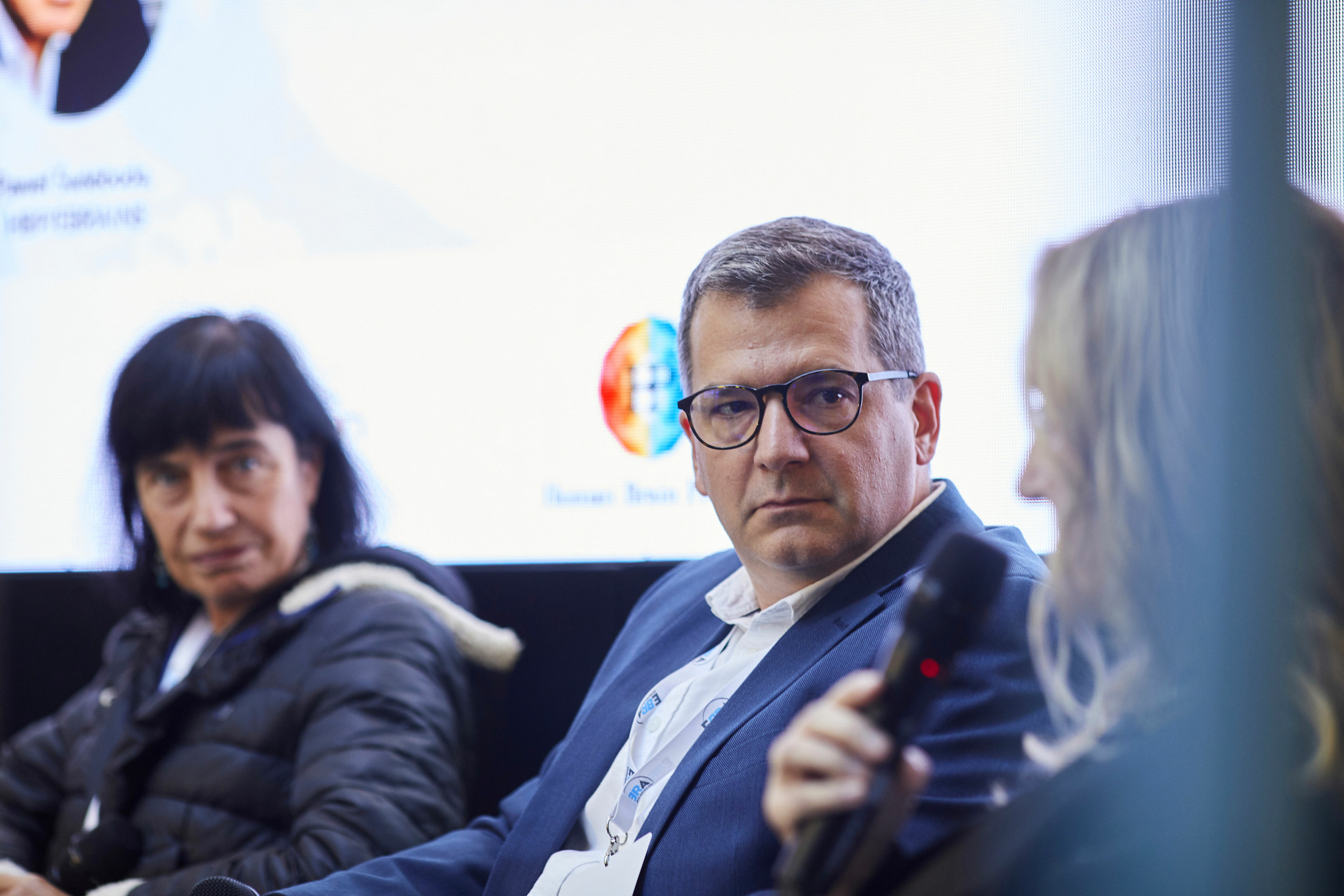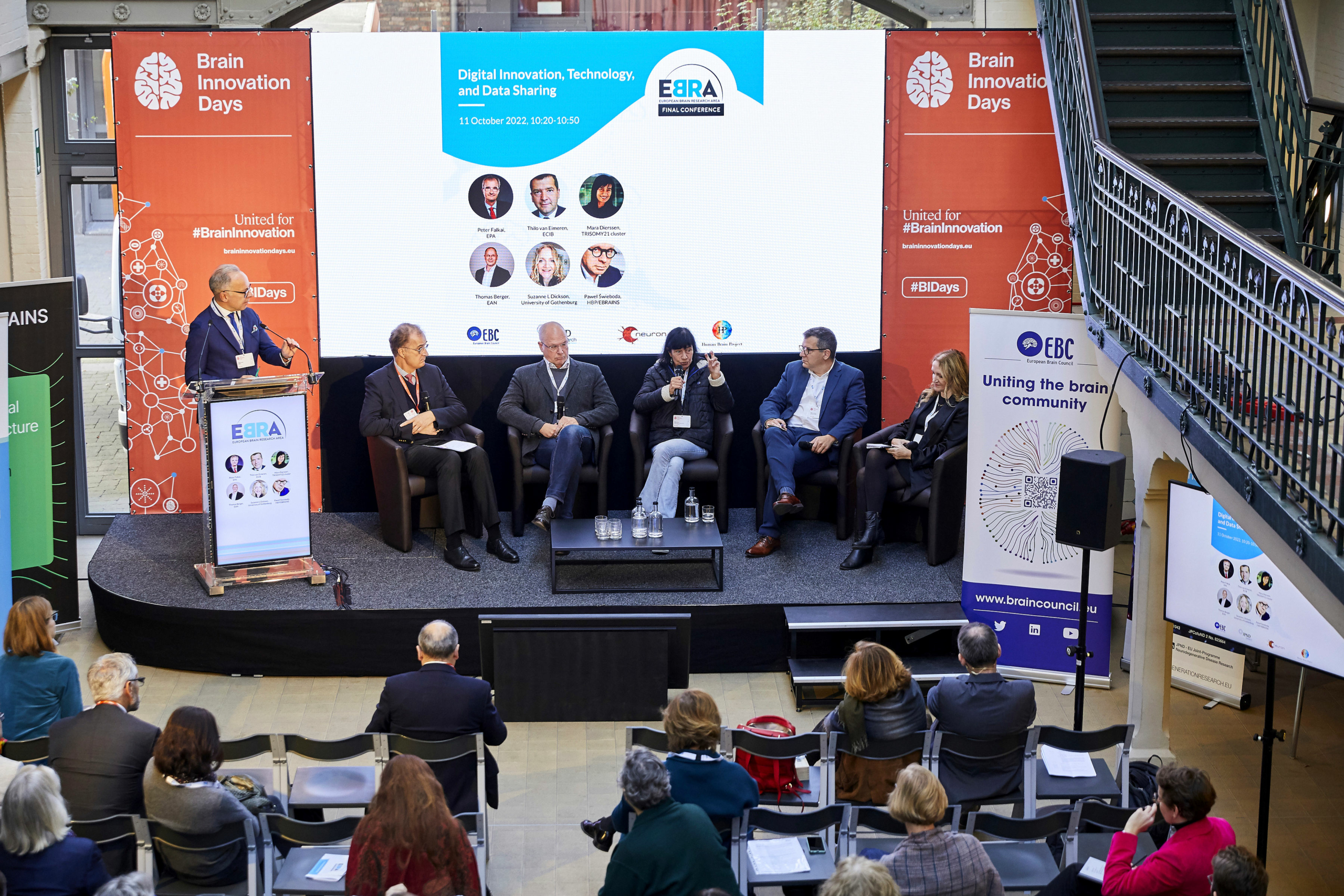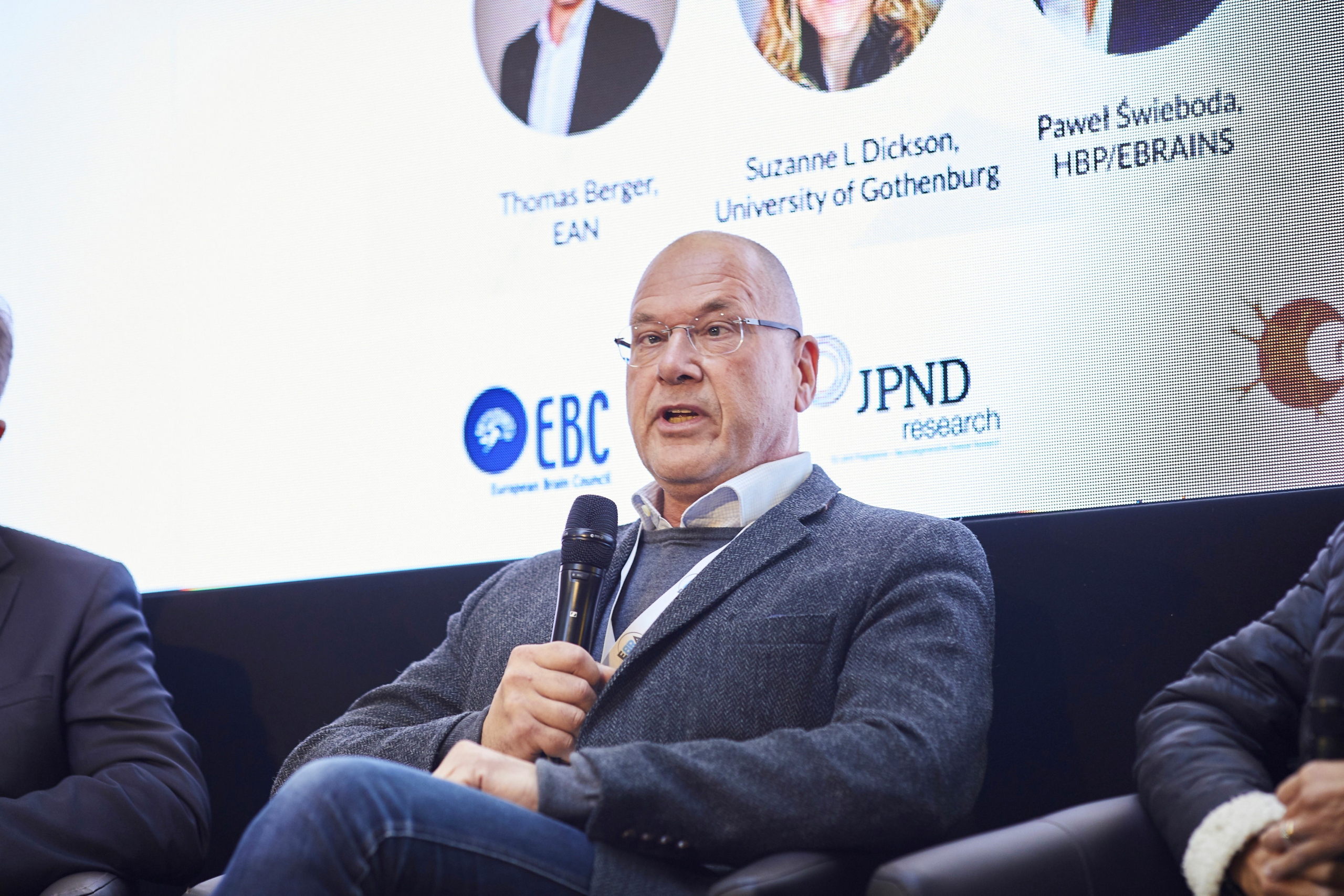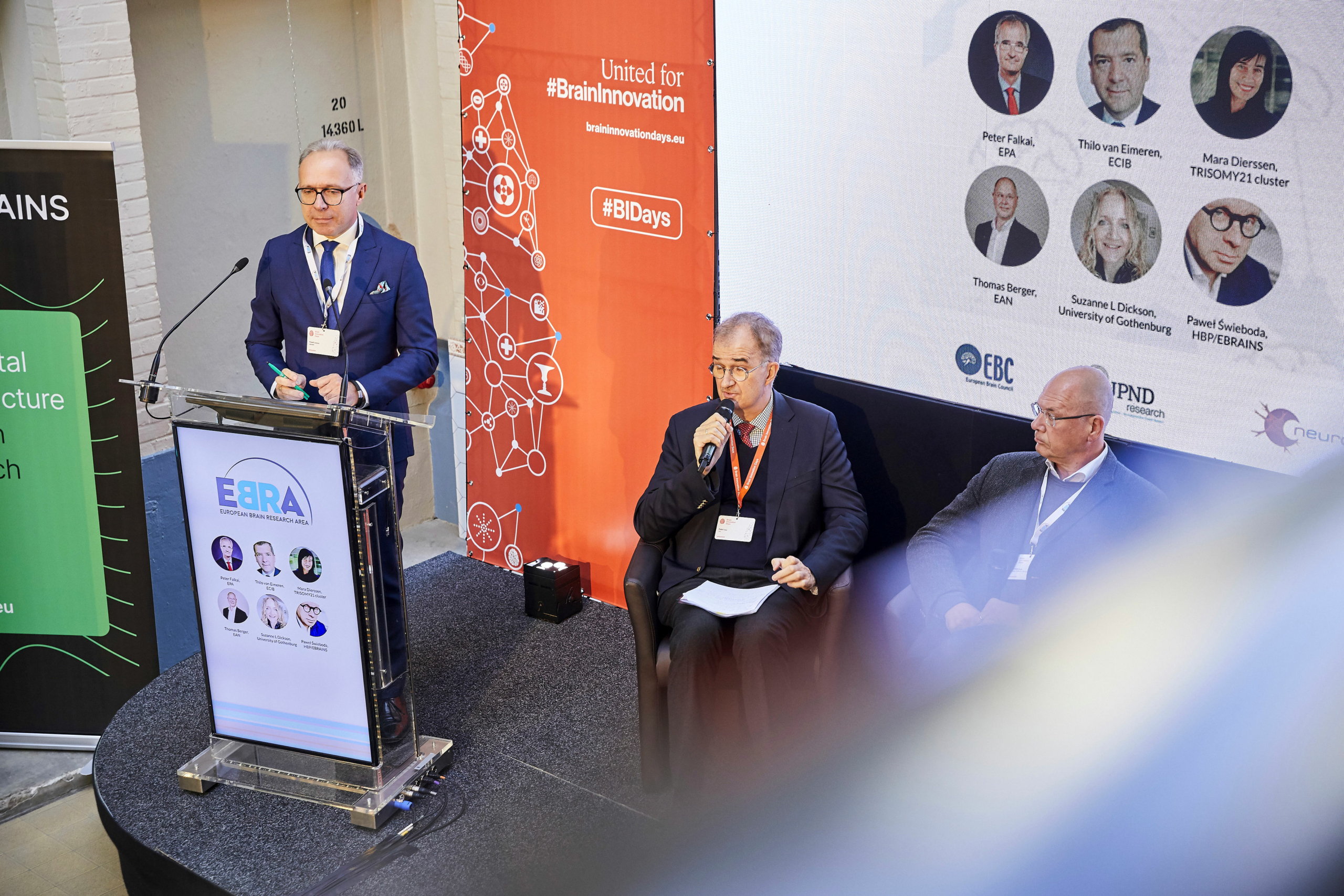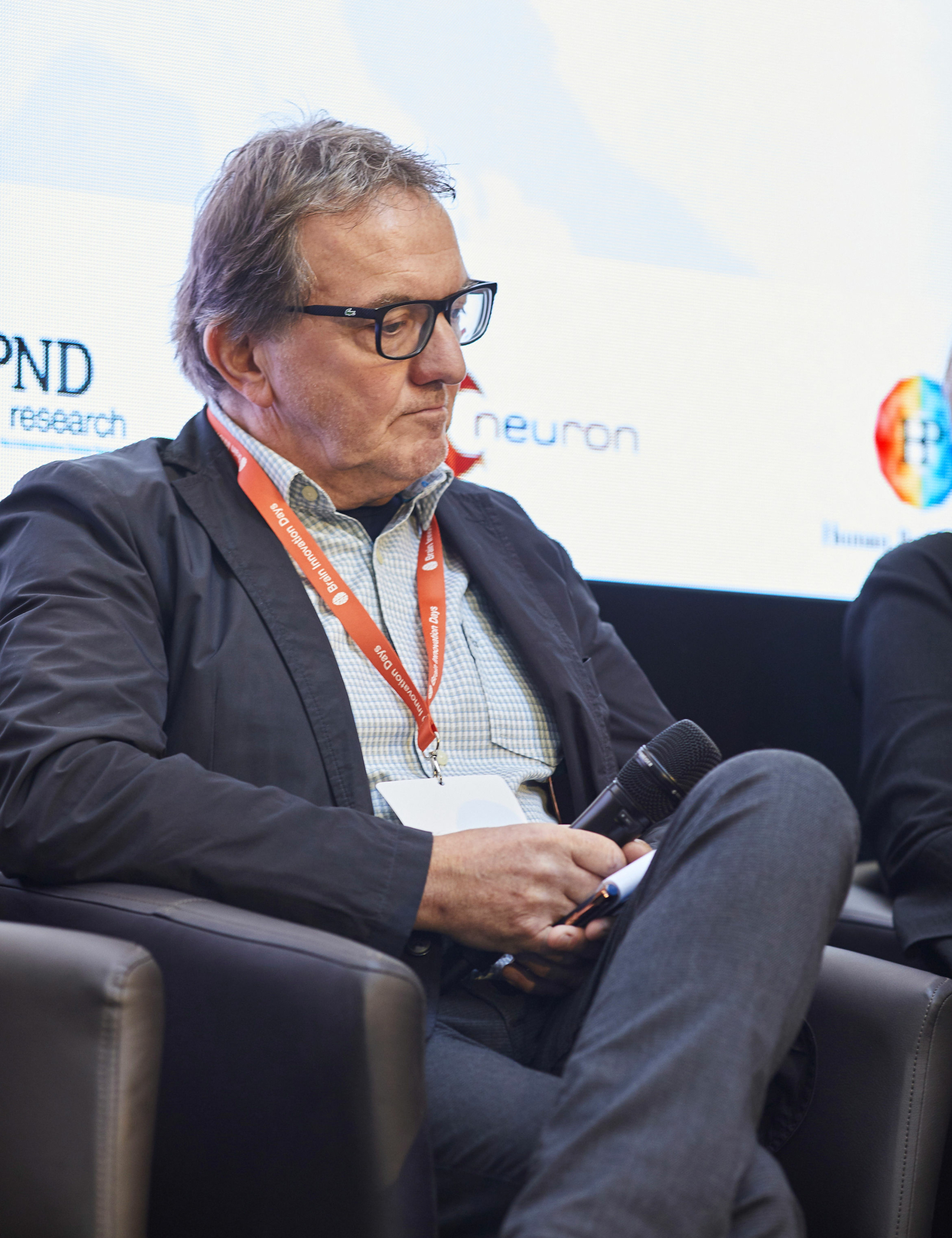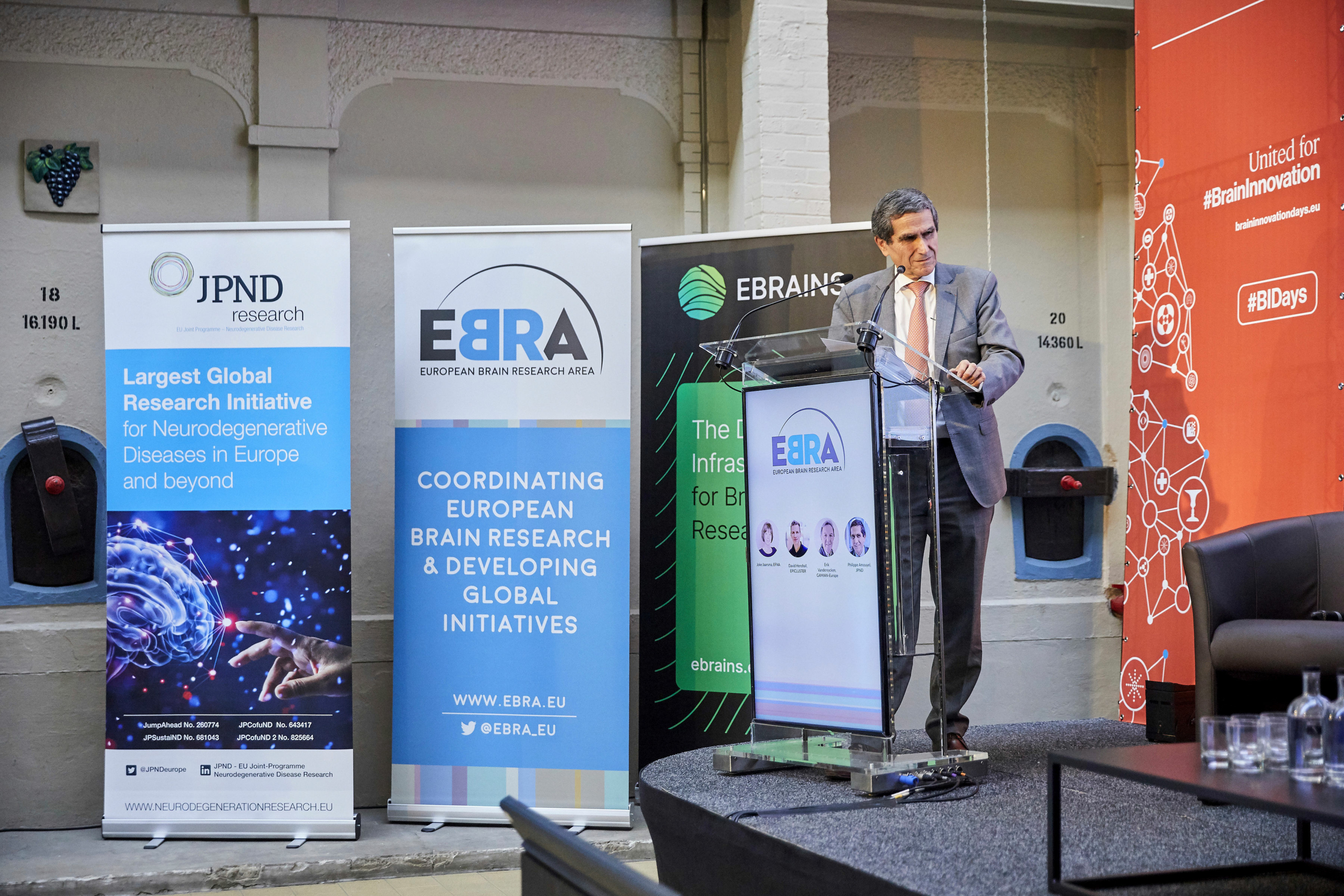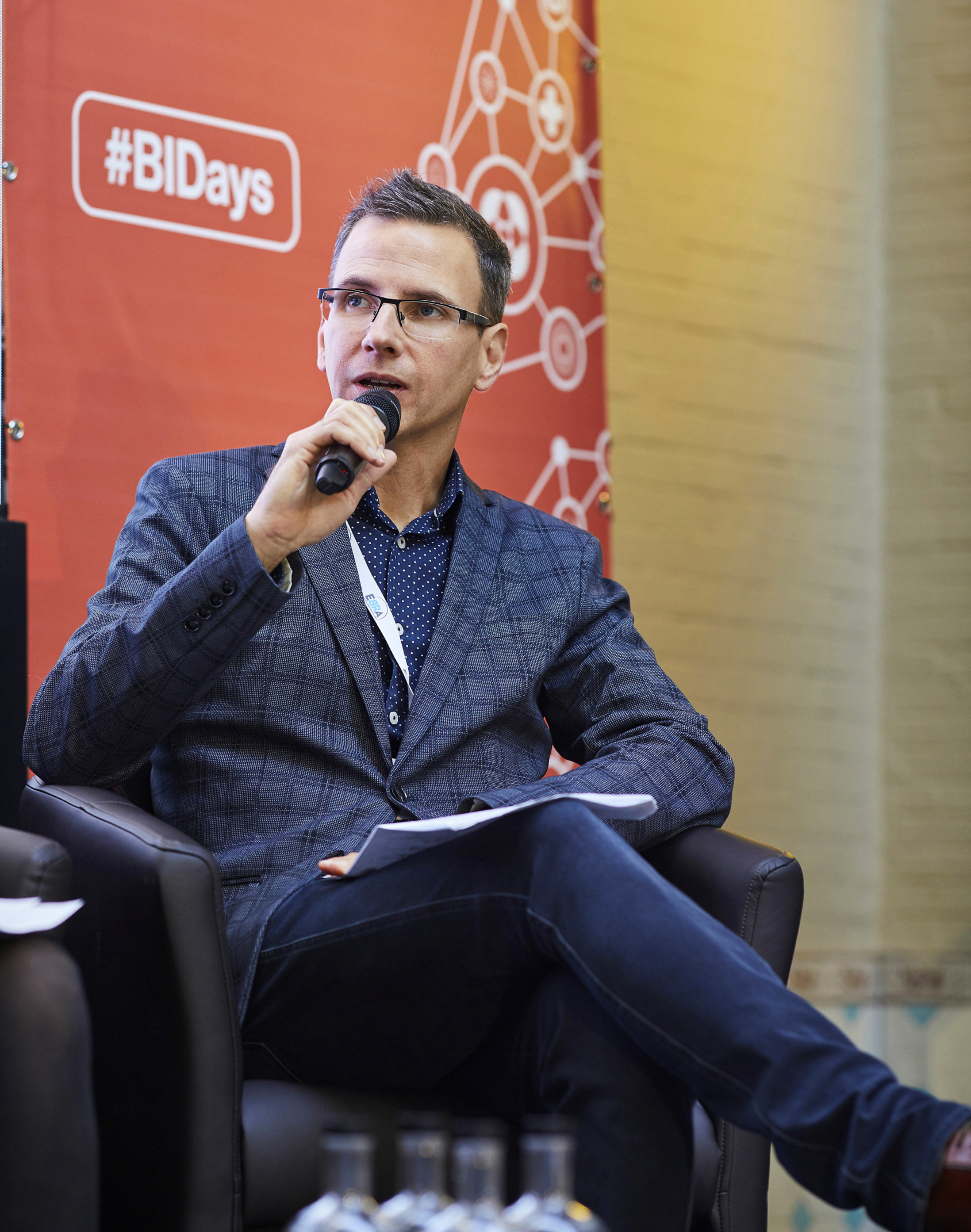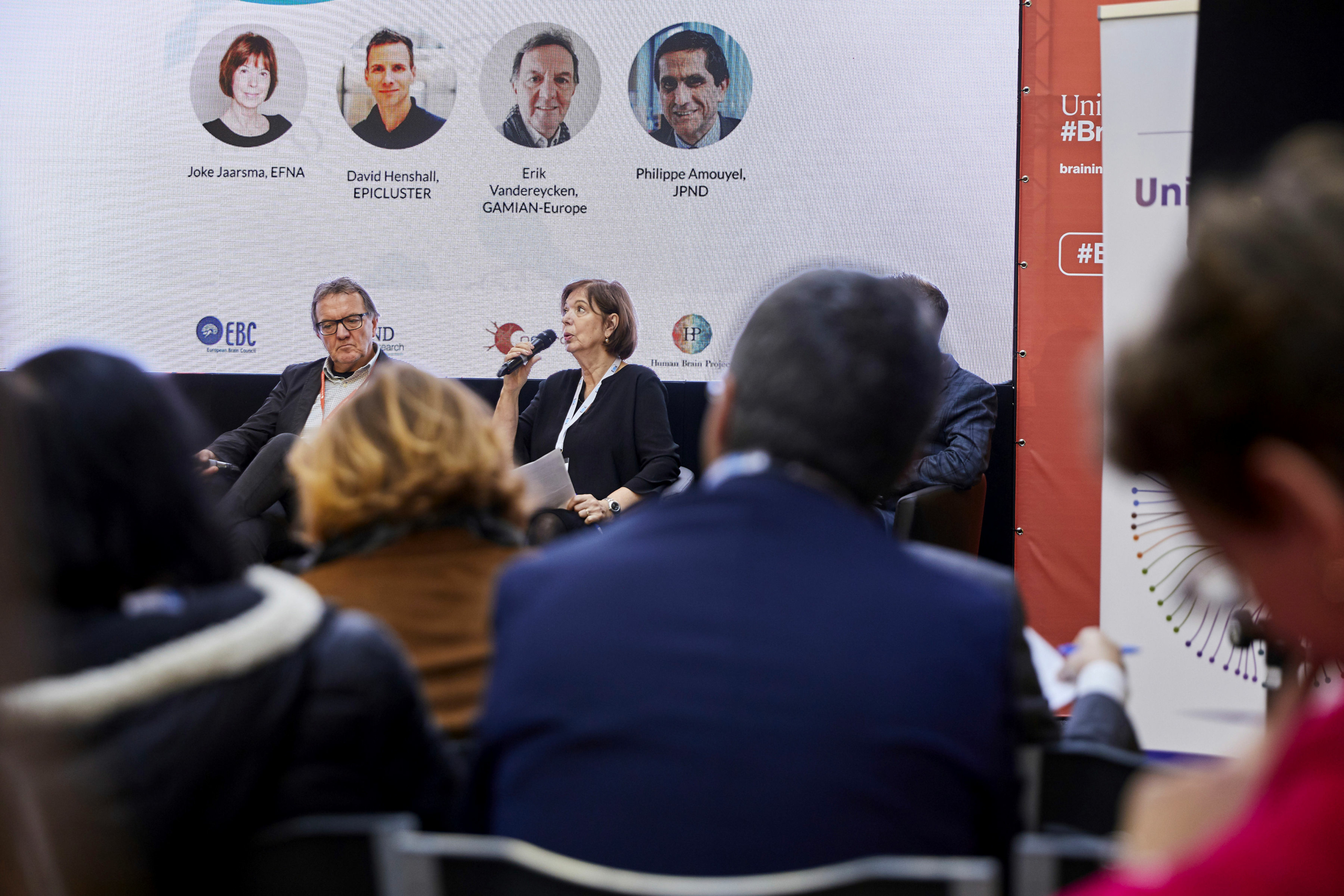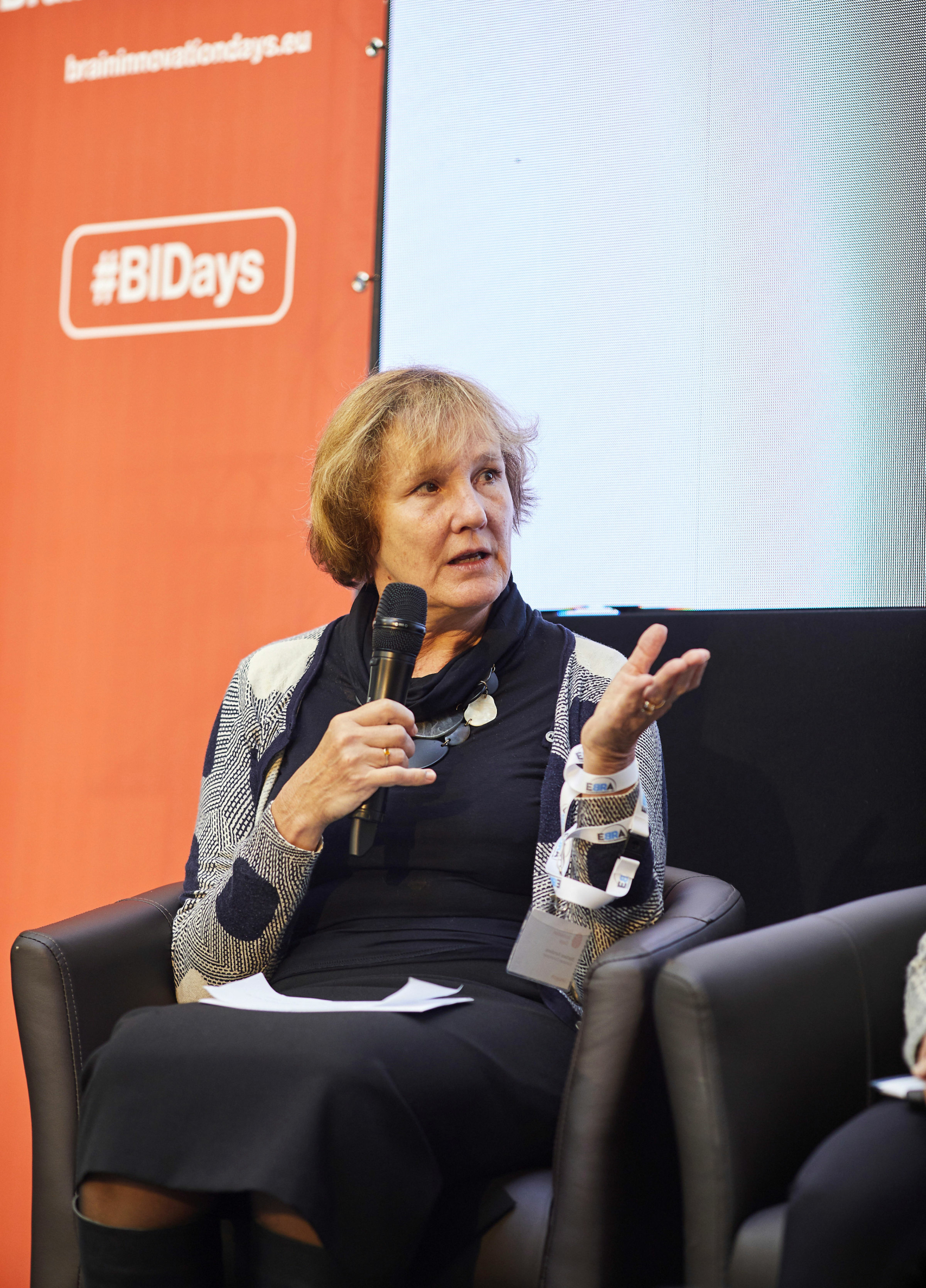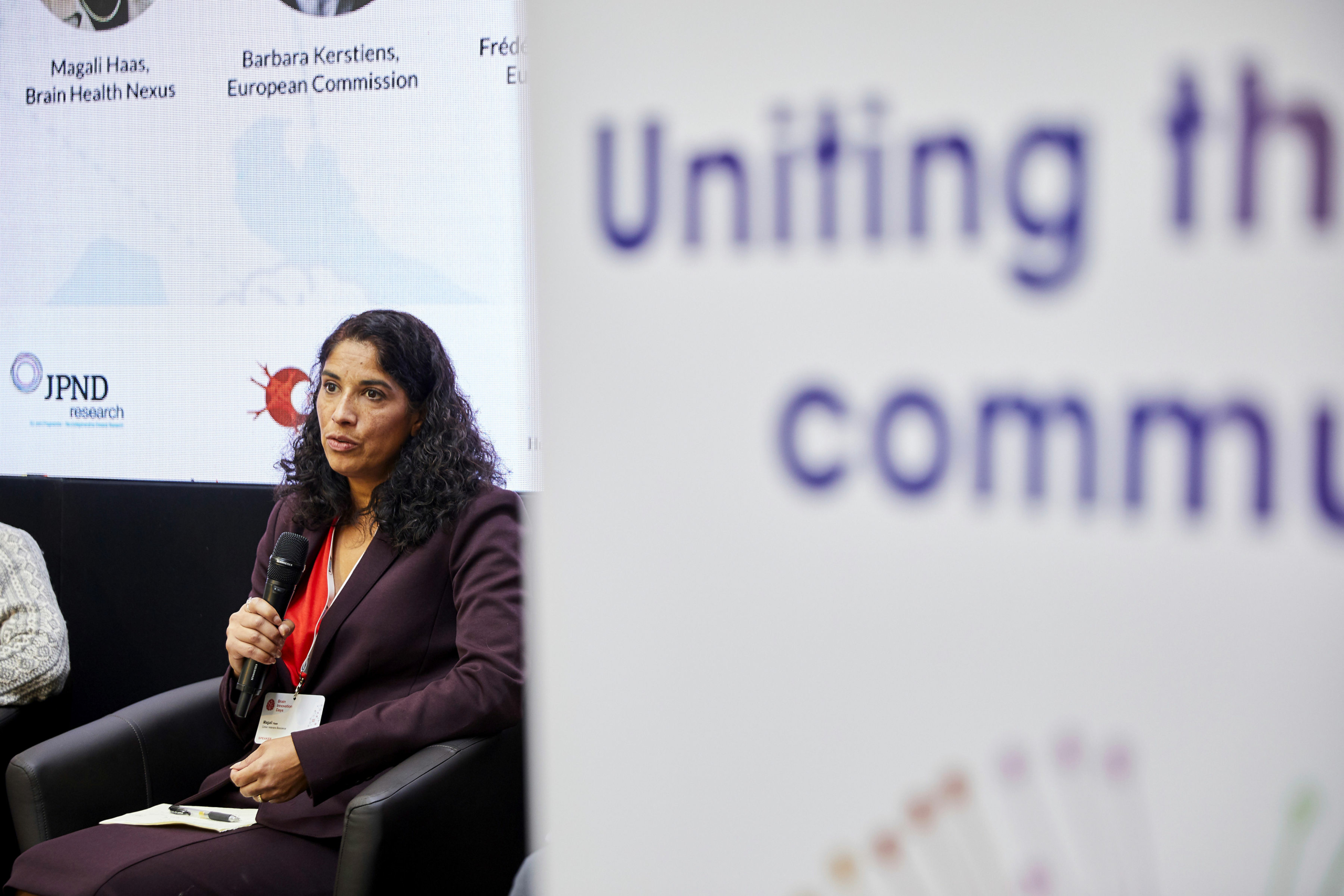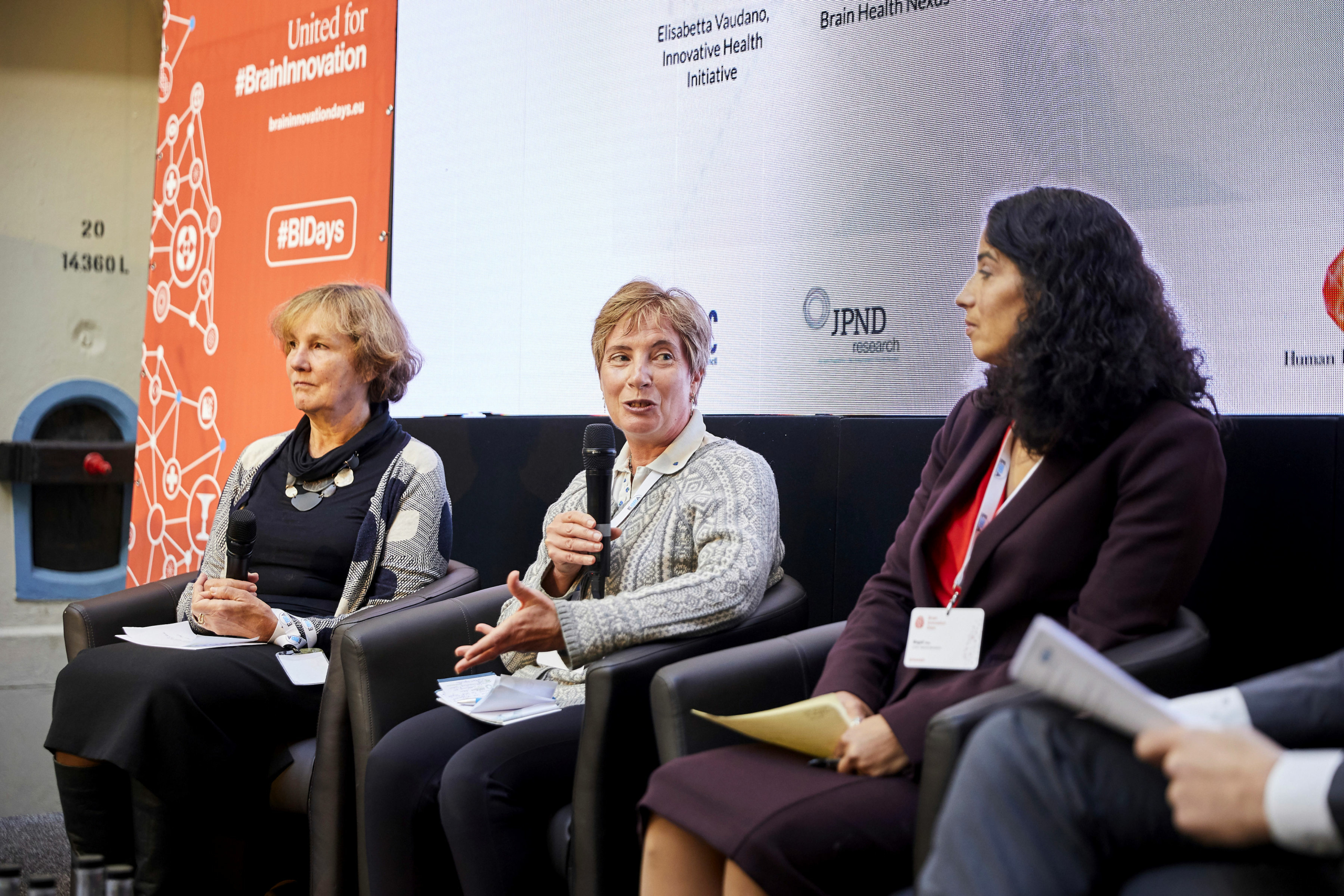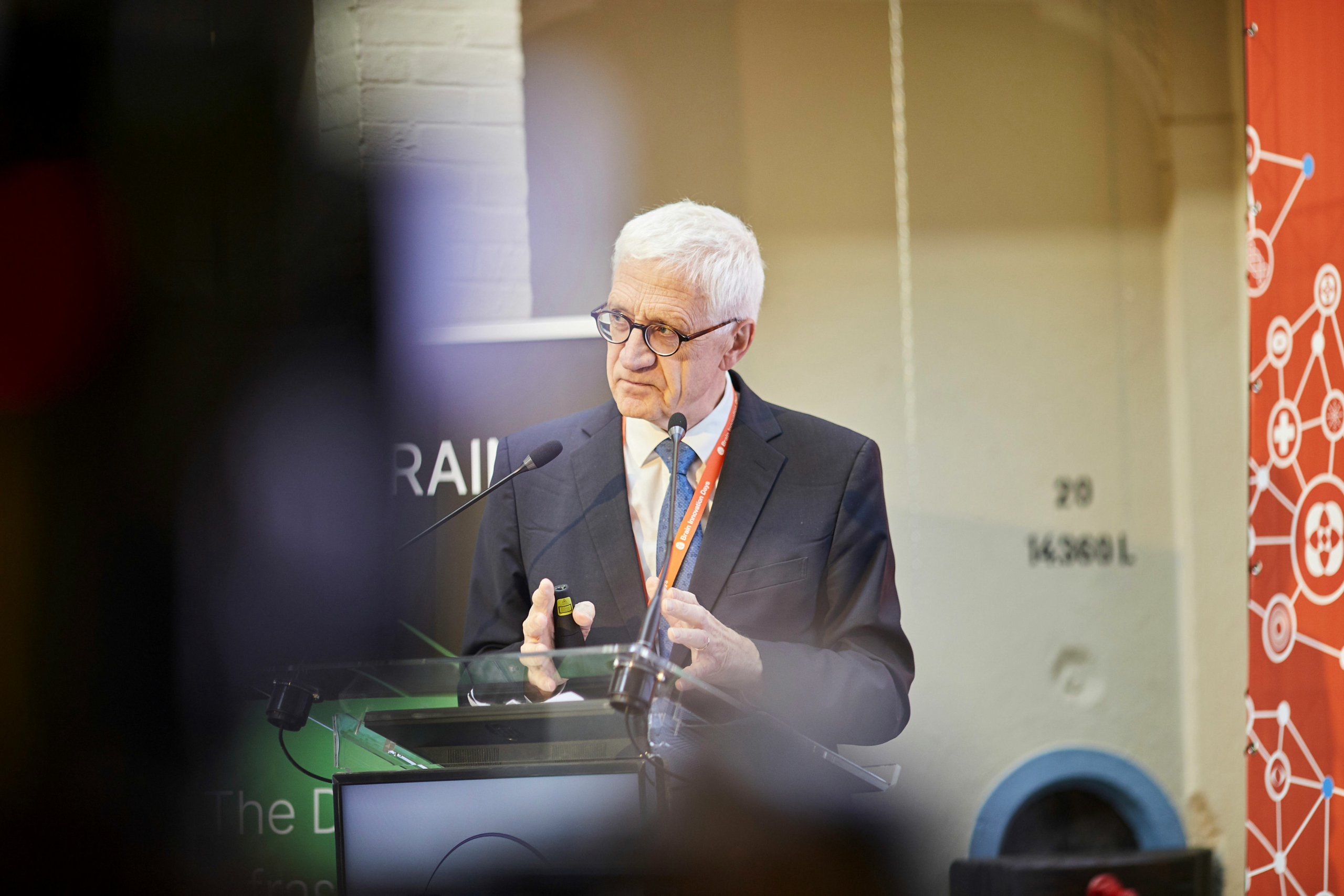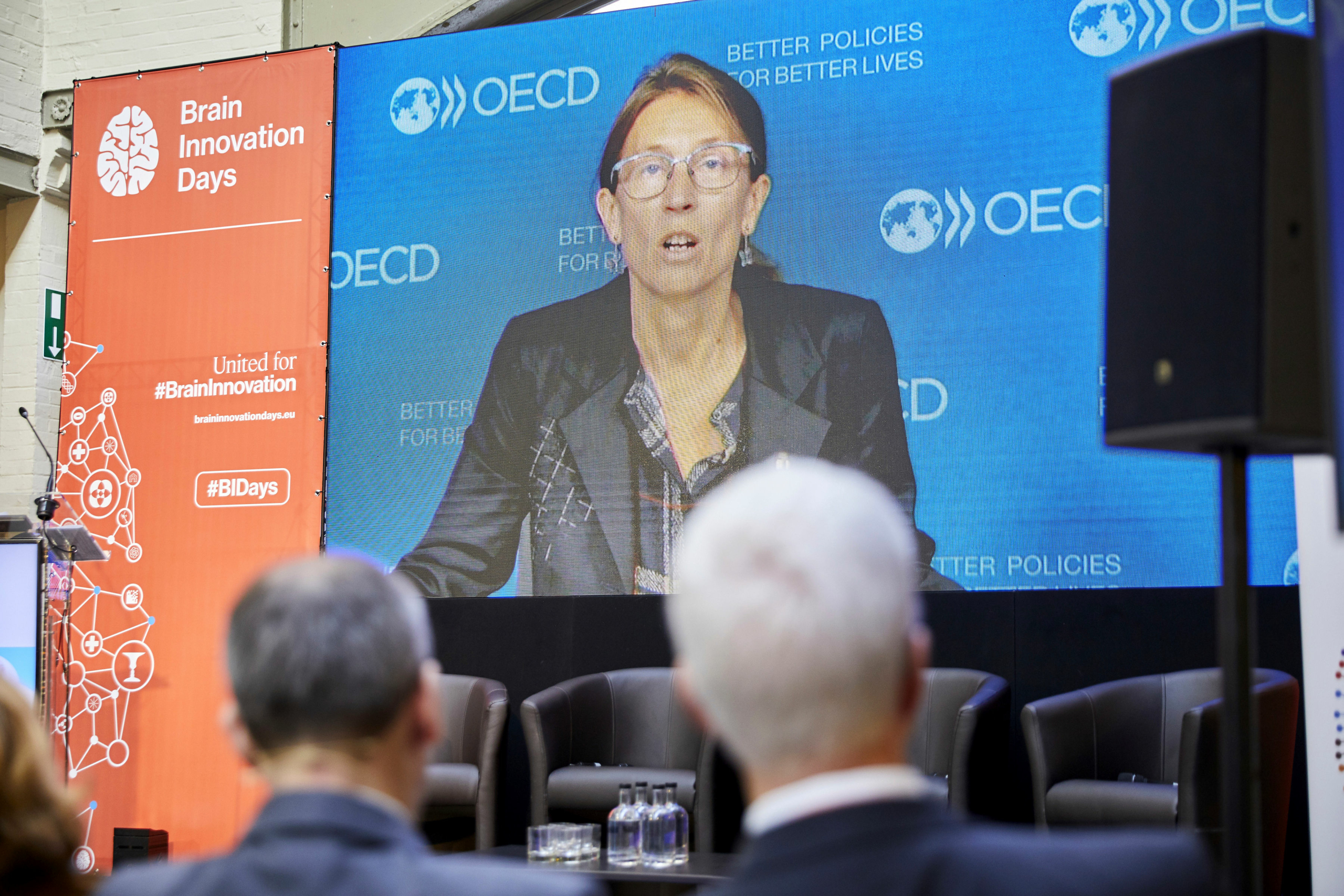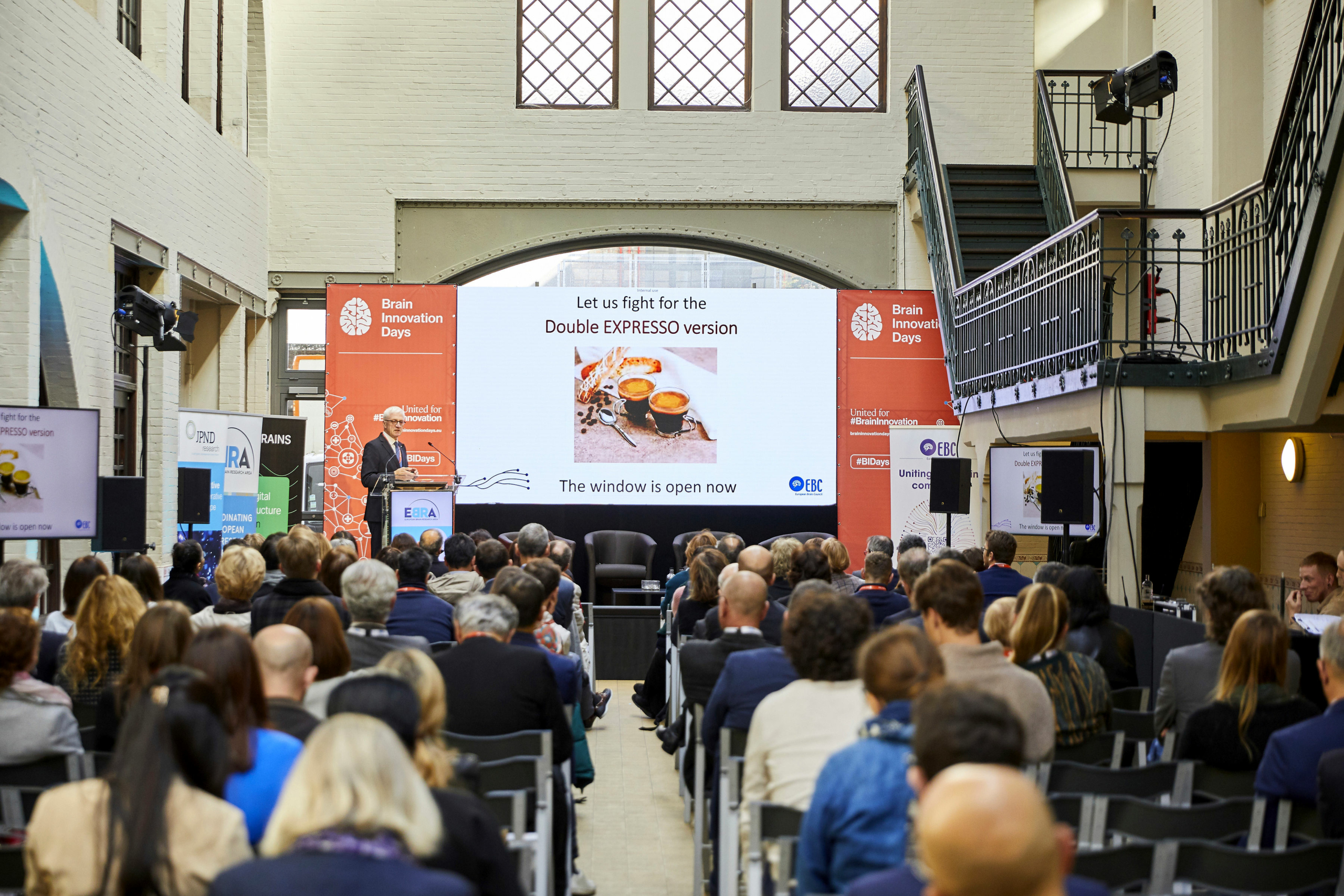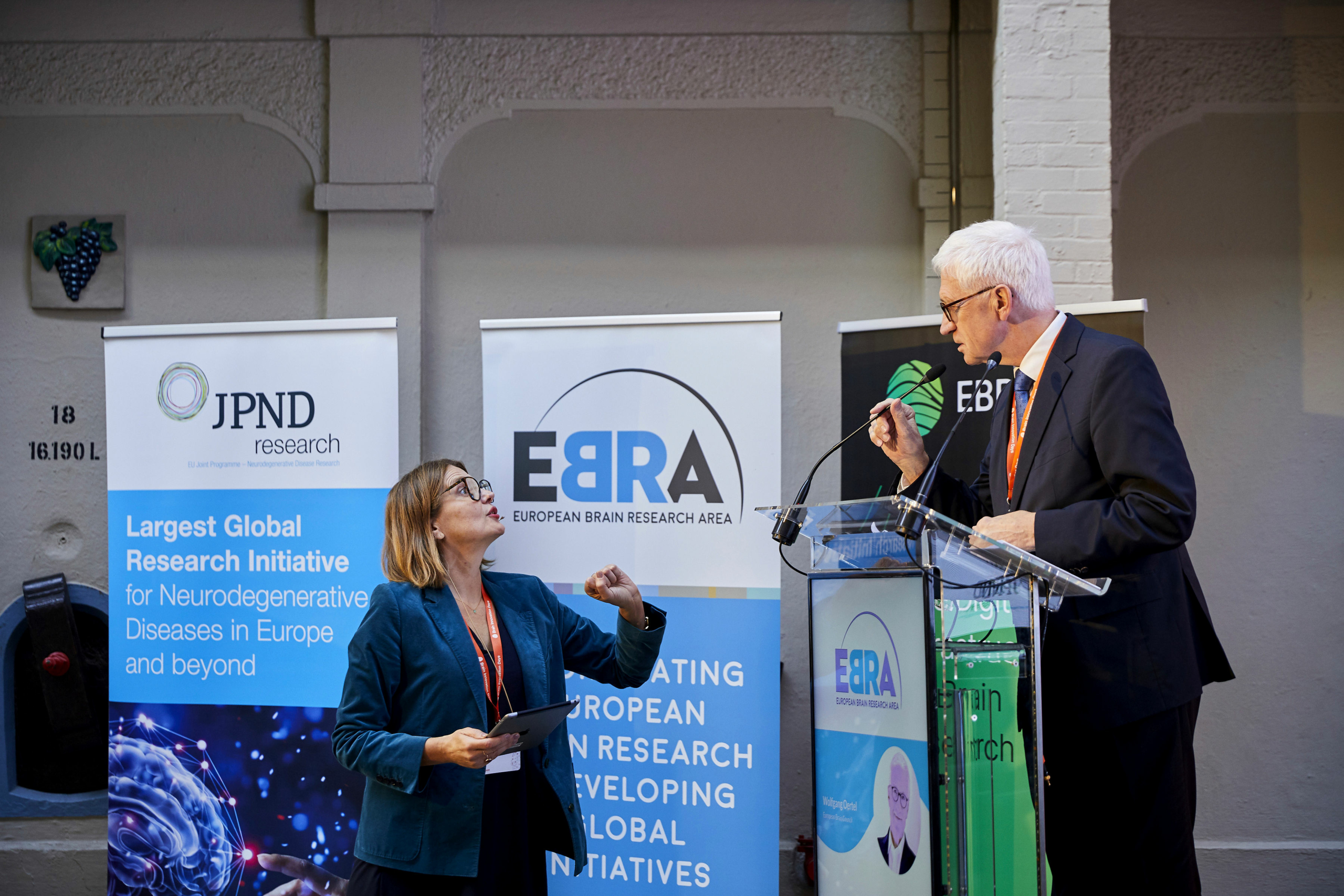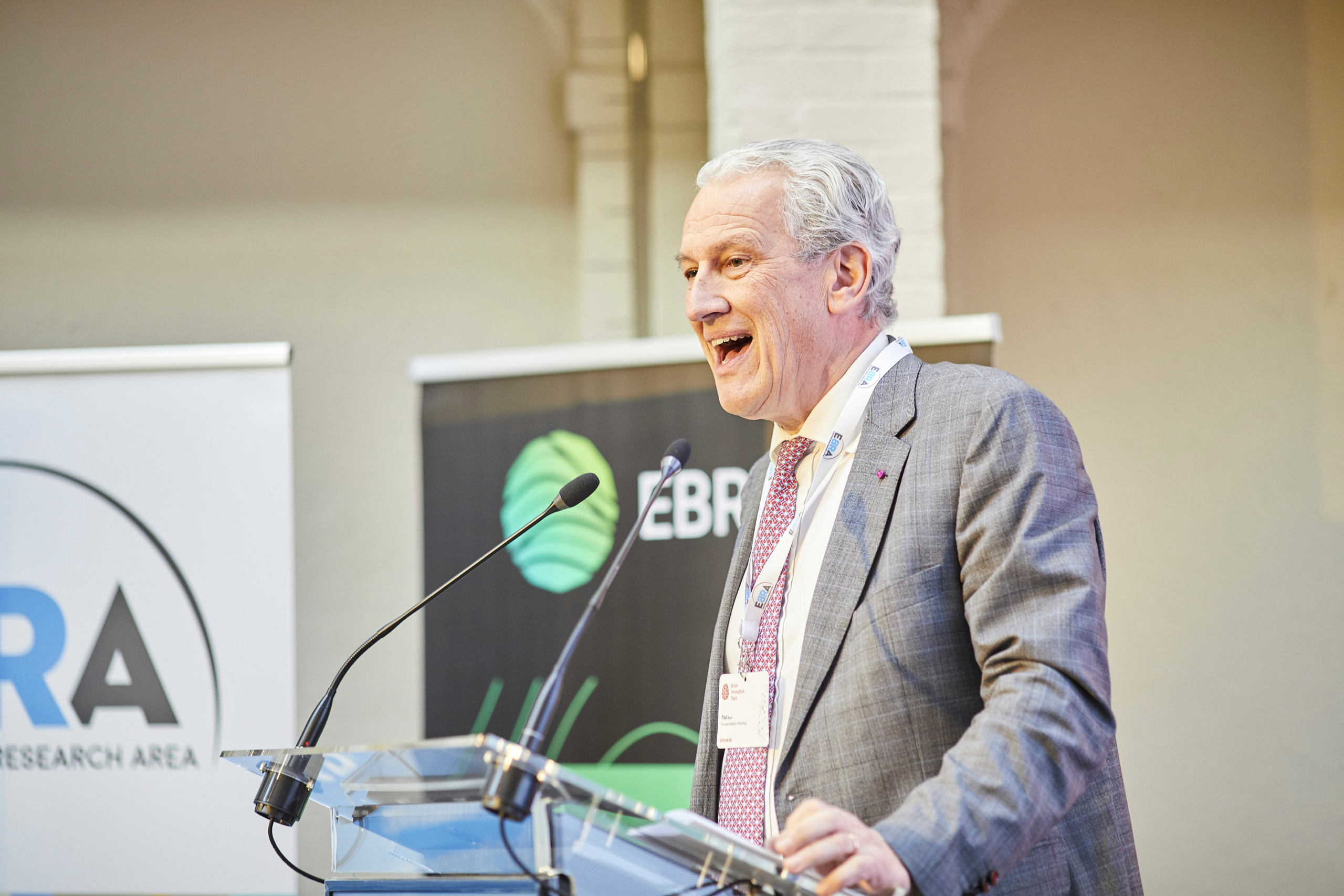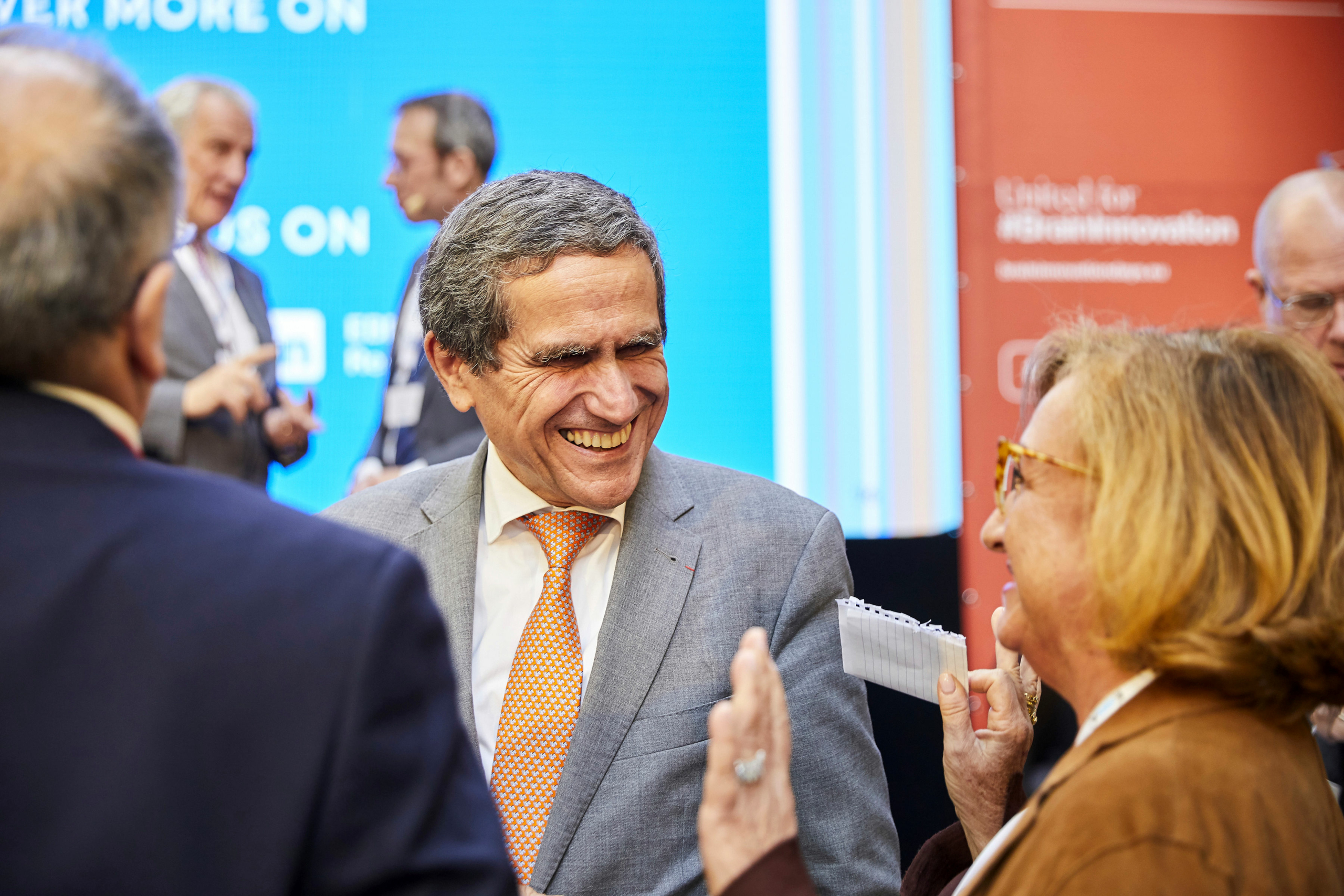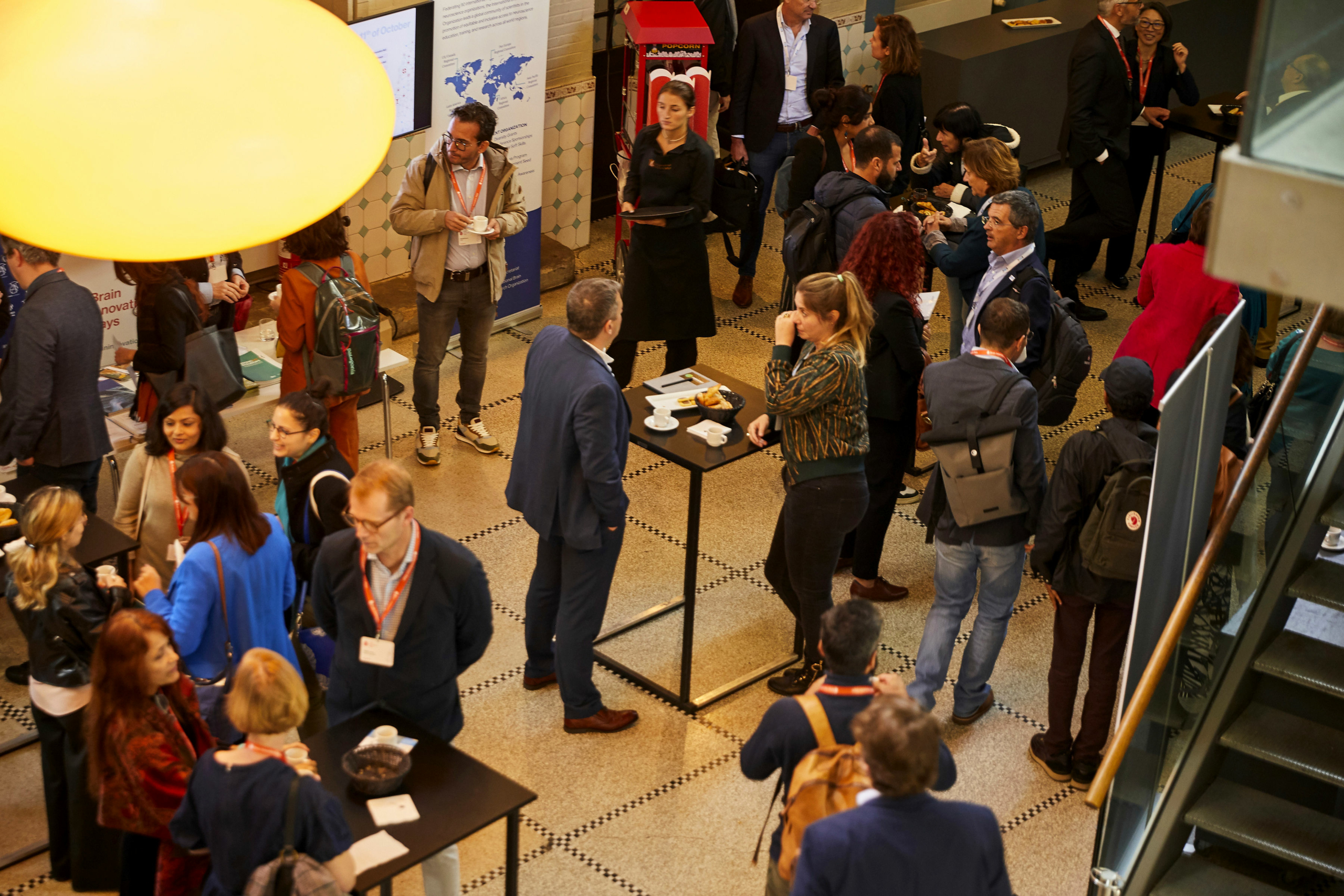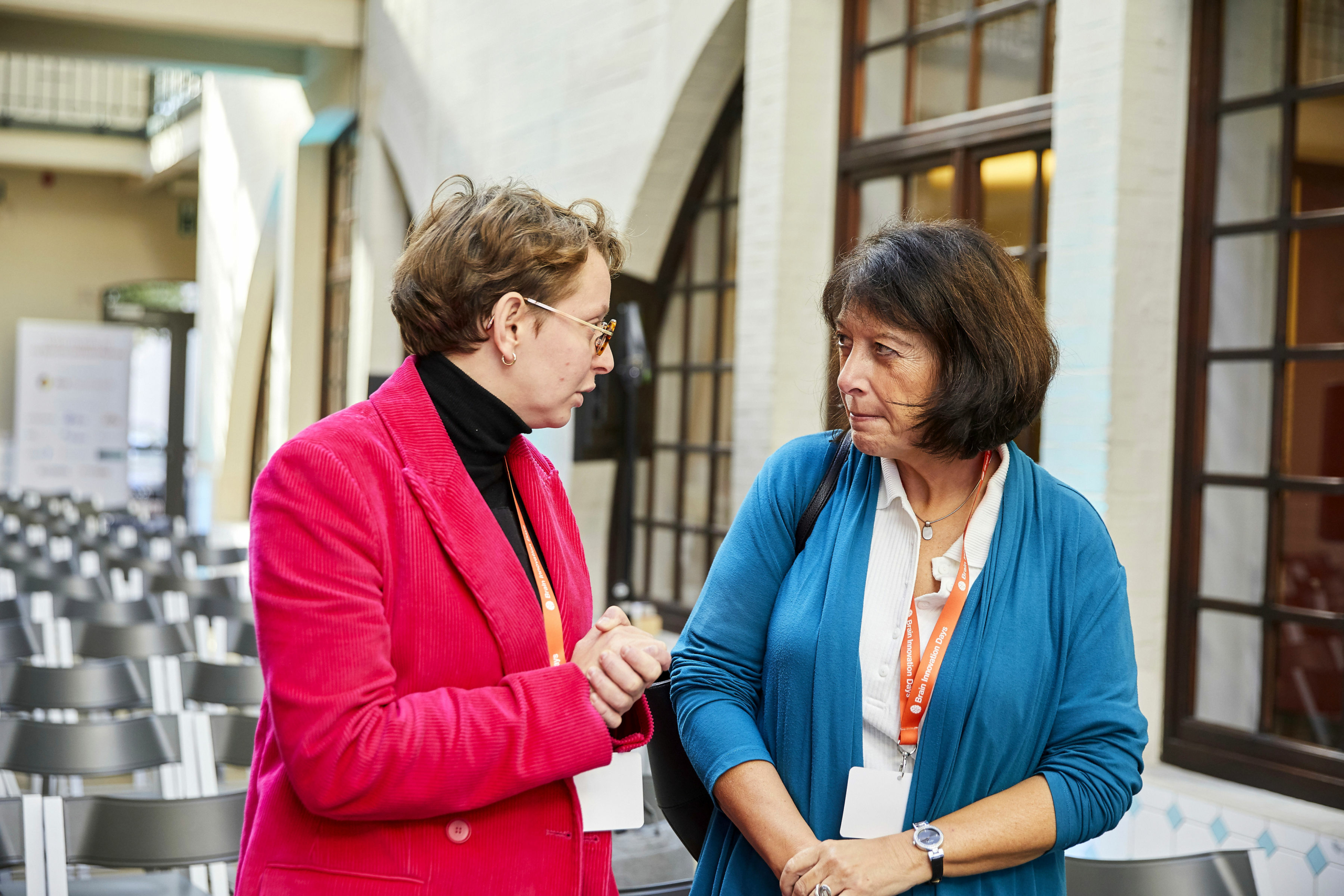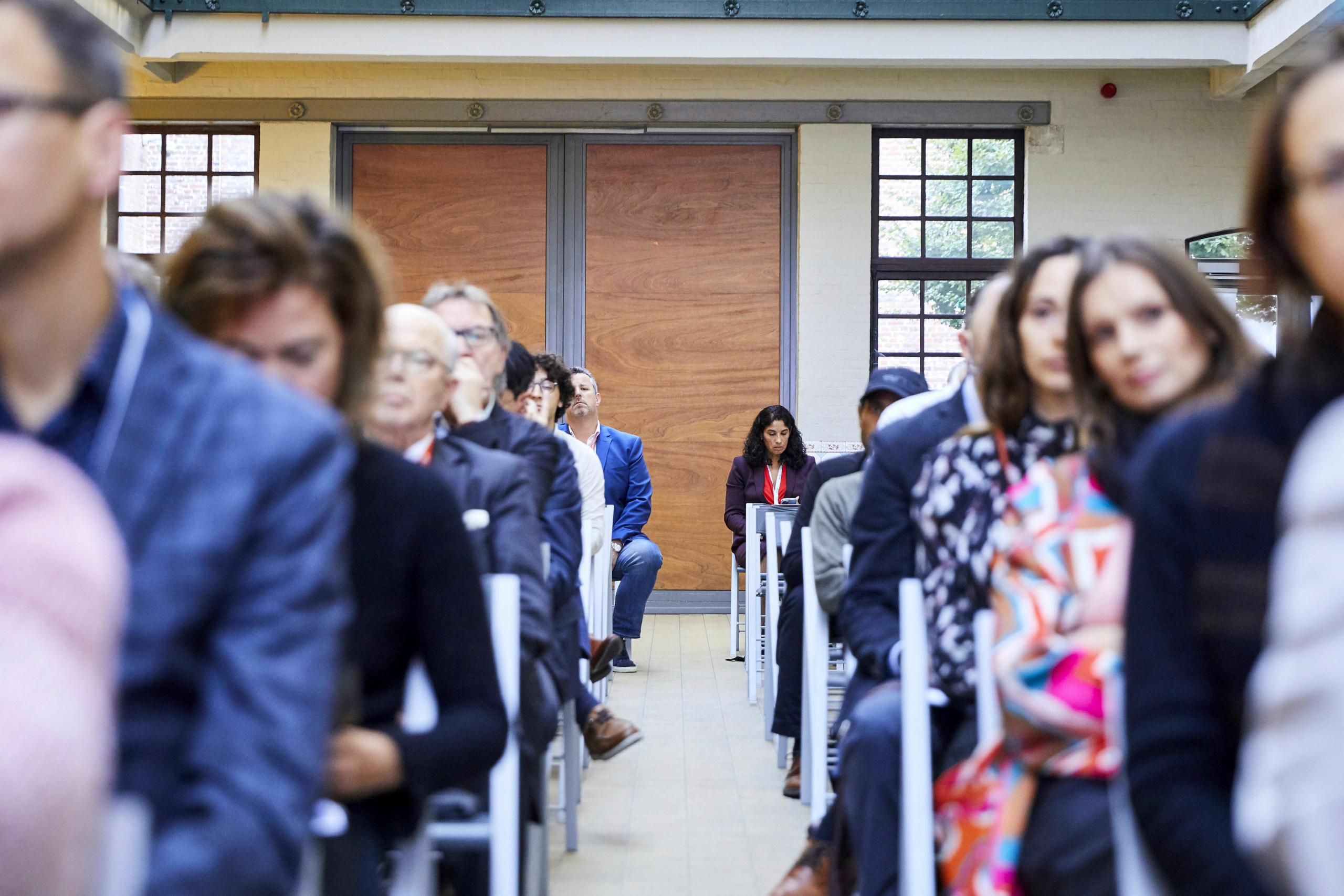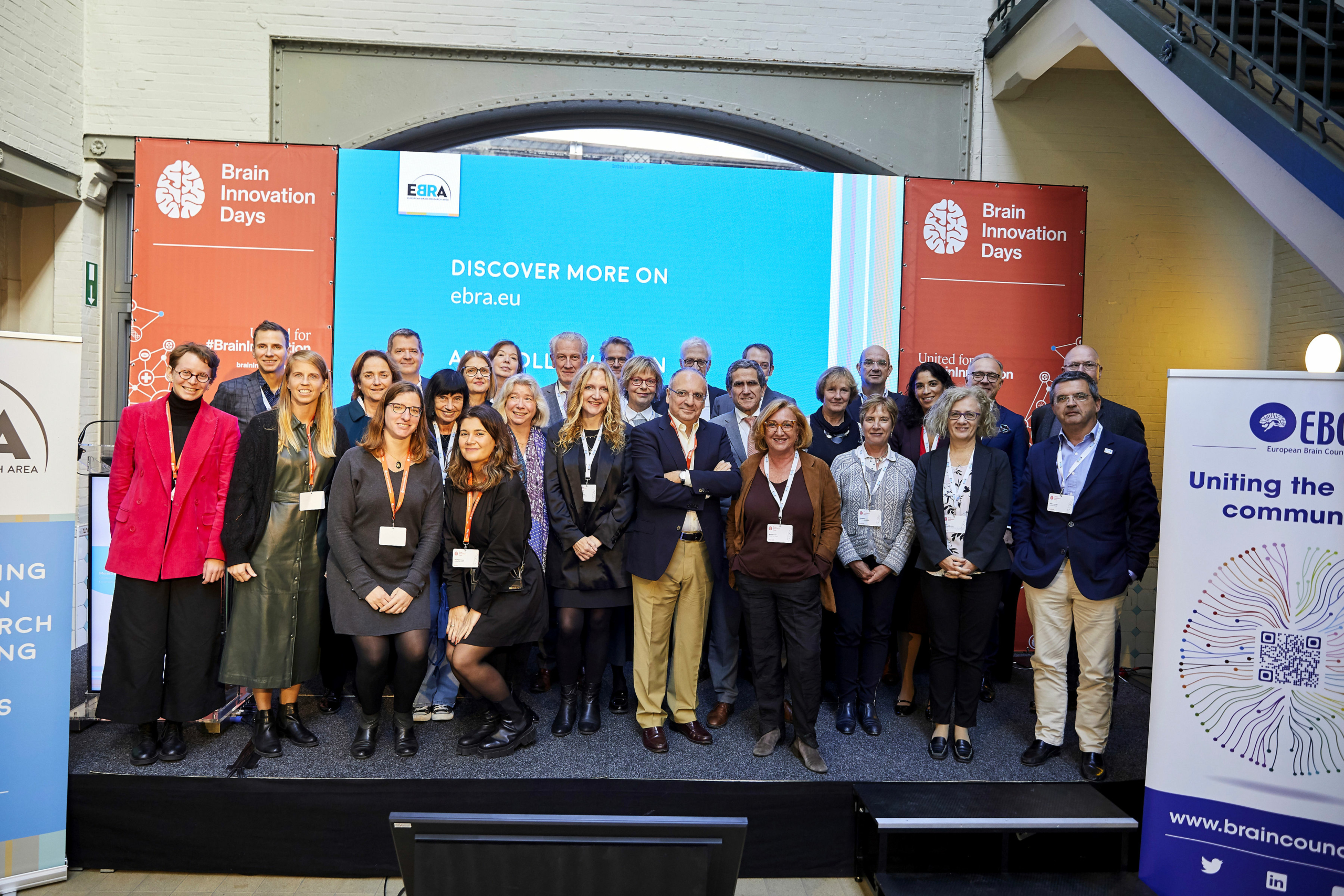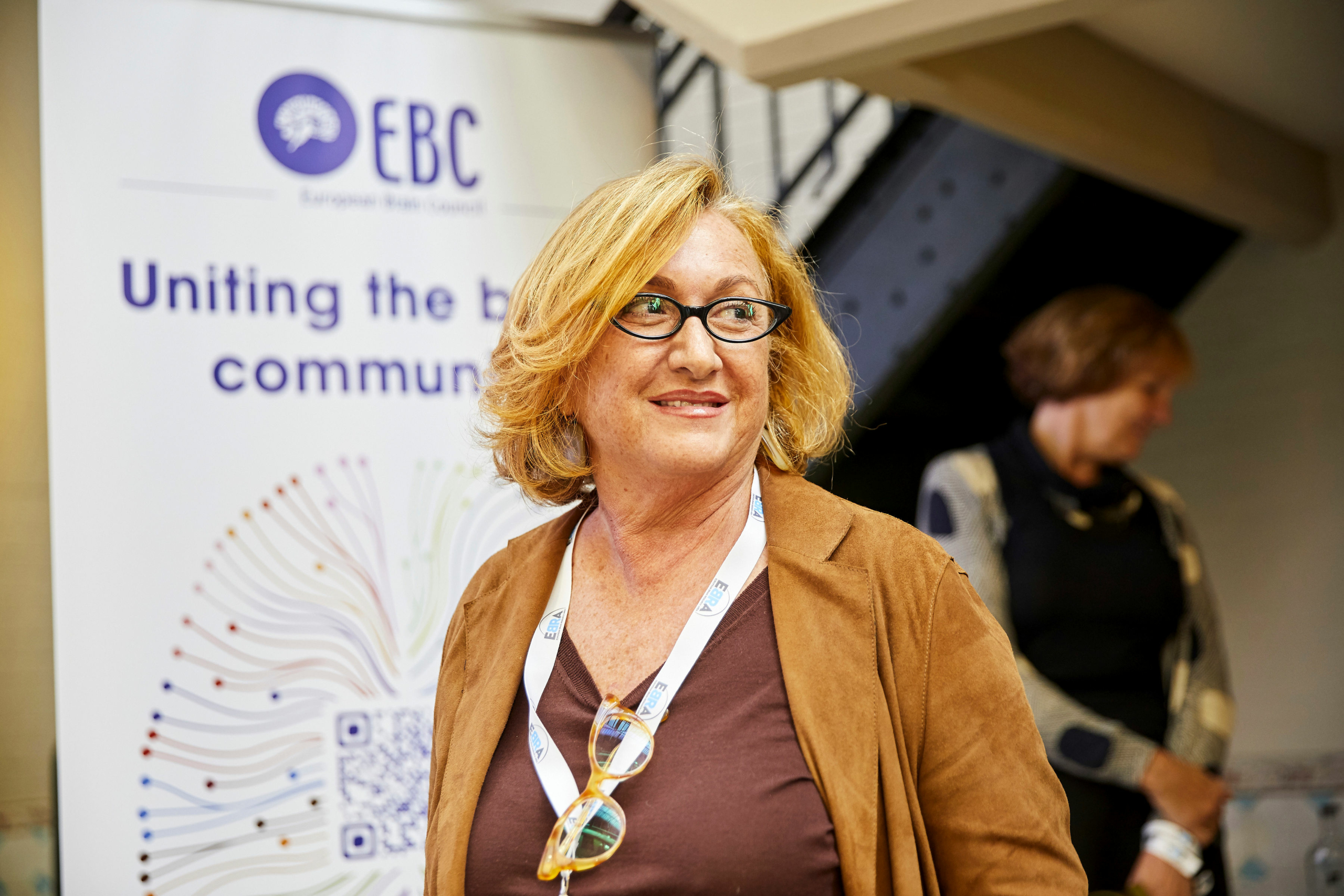The four-year EU-funded European Brain Research Area (EBRA) project came to a close at the end of October 2022, its forged partnerships and successes officially celebrated in a Final Conference held in Brussels, Belgium on 11 October.
Launched in 2018, the EBRA project — led by the European Brain Council in partnership with the Network of European funding for Neuroscience research (NEURON), the Joint Programme – Neurodegenerative Disease Research (JPND) and the Human Brain Project (HBP) — was created as a catalysing platform for brain research stakeholders (researchers, clinicians, patients, governments, funders and public institutions) to streamline and better co-ordinate brain research across Europe while fostering global initiatives. EBRA has worked at reducing the fragmentation and duplication of research efforts and at fostering synergies through enhanced coordination of brain research efforts at the EU and global level.
The event was an occasion to bring the wider brain research community and key players together, to discuss key aims of the project: the current state of brain research in Europe, increased patient engagement and public awareness, research infrastructures and data sharing and the future potentials and need for a brain health partnership going forward. Look back at the full programme here and in the recaps below.
The morning began with a kick off from Master of Ceremony, Bettina Hausmann and a Welcome Address by EBRA Project Coordinator, Prof Monica Di Luca, who welcomed the room of 200 participants and gave an overview of the project’s impact at the European and global levels. Starting from the beginning, she elaborated on the community building activities undertaken over the last years and how the project and community has seen great movement towards open engagement and collaboration.
The first panel discussion brought the EBRA Partners together on stage: Juan Lerma, Vice President, European Brain Council; Pawel Swiéboda, Director General, Human Brain Project, and CEO, EBRAINS; Philippe Amouyel, Chair, EU Joint Programme for Neurodegenerative Disease Research (JPND) and Hella Lichtenberg. Moderated by Frédéric Destrebecq, Executive Director, European Brain Council, the partners explored what each considered the main significance and achievement of EBRA, its legacy, and how, going forward, we can continue to capitalize on EBRA to build the future of brain research in Europe.
The programme was made up of a series of high-level panel discussions featuring key stakeholders from the EBRA community, including Cluster and Third Party representatives, highlighting key themes within the EBRA project which were important for the future-looking discussion.
The second panel, Translation from basic to clinical research, focused on how results from fundamental research can be used in the clinical practice. Understanding the human brain is fueled by progress in basic research, and specifically technology leaps catalyze advances. In the long term this impacts on both the promotion of brain health and prevention of brain diseases. Moderated by Hella Lichtenberg, Project Manager, NEURON and in discussion with Harm Krugers, Treasurer, Federation of European Neuroscience Societies (FENS); José L. Lanciego, University of Navarra, International Brain Research Organisation (IBRO); Hatice Tankisi, University of Aarhus, EMEAC-IFCN; Sabine Hölter-Koch, Coordinator, Predictive Model Systems (PREMOS) cluster; and Roger Adan, Coordinator, BRAINFOOD cluster; the panel reflected on the development of treatments and cures in view of the advances in early diagnosis and detection, new opportunities based on molecular knowledge, and considerations on the breakdown of traditional disease boundaries, exploring the main hurdle(s) in the translation from fundamental to clinical research (and possible strategies to overcome them) and the role of funders in enhancing/promoting translation.
Moderated by Paweł Świeboda, Director General, Human Brain Project and CEO, EBRAINS, the third panel, Digital Innovation, Technology, and Data-Sharing, shed light on the technologies and innovations needed to impact scientific discovery and improve the diagnostic processes and care for patients affected by brain disorders. Neurology, psychiatry, neuro-developmental, neuropsychopharmacology, and neuroimaging research community representatives — Thilo van Eimeren, Coordinator, European Cluster for Imaging Biomarkers (ECIB); Mara Dierssen, Coordinator, TRISOMY21 cluster; Thomas Berger, Chair of EAN Scientific Committee, European Academy of Neurology (EAN); Gitte Moos Knudsen, President, European College of Neuropsychopharmacology (ECNP); and Peter Falkai, President, European Psychiatric Association (EPA) — shared their views and needs to advance and support brain health. Prospects for step change in greater accessibility to brain health data were discussed, including by examining plans for the European Health Data Space.
The panel reflected on the most impactful recent innovations in psychiatry and neurology, how technology improves clinicians’ practices and patients’ everyday life and the main needs/gaps of the scientific communities represented in terms of digital innovation, technology, and data-sharing (and how policies can potentially support this).
The fourth and final panel on Patient and Public Involvement, moderated by Philippe Amouyel, Chair, EU Joint Programme for Neurodegenerative Disease Research (JPND), focused on the involvement of patients and the general public in research. In the last 20 years, Patient and Public Involvement (PPI) has become an indispensable component of health and healthcare research. The aim of PPI is to turn the focus of research towards the patient. With PPI, the patient and the public become partners in the planning and conduct of research. The patient has experiential knowledge from living with the disease, which complements the academic knowledge of the researcher. This partnership potentially widens the goal of the research to include the precise needs of the patients and their families.
Panelists Erik Van der Eycken, Expert by Experience, GAMIAN-Europe; Joke Jaarsma, President, European Federation of Neurological Associations (EFNA); and David Henshall, Coordinator, EPICLUSTER; spoke on the importance of patients to be involved in research, their experience as patient representatives and scientists in PPI, and the impact they believe it has based on their own experiences.
To summarize what had been discussed so far, Prof Paul Boon, President, European Academy of Neurology gave his views on tackling the brain research challenges and priorities in Europe. Walking through the three panels, he touched on:
Translation from basic to clinical research
- Understanding disease mechanisms
- Need for biomarkers for early diagnosis and monitoring drug effects
- Preclinical researchers need to work together in joint projects with clinicians
Digital Innovation, Technology, and Data Sharing
- Impactful recent innovations in psychiatry and neurology
- Needs of the scientific communities in digital innovation, technology, and data-sharing
- Promotion of data-sharing and the re-use of data
Patient Involvement
- Importance and impact of patient involvement
- The need to motivate researchers and improve the collaboration between researchers and the patients
Altogether, how do we continue from here to work together for brain health?
Turning towards the future, the final session within the programme focused on Shaping the Future Brain Research and Brain Health Landscape in Europe and Globally, kicking off with a Keynote from Prof Wolfgang Oertel, President, European Brain Council, who reiterated the importance of continued support and investment in brain research, as brain disorders continue to impose a large economic and societal burden in Europe and beyond. He spoke on the planned EU “Brain Health Partnership” as a way to merge all existing large-scale initiatives dedicated to brain research and address it in a holistic and inclusive manner, where it is obviously key that a smooth transition and implementation of this new mechanism is ensured. With the development of a shared agenda within the EBRA project (European Brain Research Area), the first steps are being taken but need to be continued in collaboration with the whole community.
This continued into the final panel discussion of the conference surrounding the future of brain research in Europe and globally, bringing together key stakeholders working at the European and global levels: Barbara Kerstiens, Head of Unit – ‘Combatting Diseases’, People Directorate of the Directorate-General for Research and Innovation, European Commission; Elisabetta Vaudano, Principal scientific manager, Innovative Health Initiative; and Magali Haas, CEO and President of Cohen Veterans Bioscience and Brain Health Nexus. Two additional panelists who were unable to attend on the day — Katrin Seeher, Technical Officer, World Health Organisation (WHO) and Francesca Colombo, Head of Health Division, Organisation for Economic Co-operation and Development (OECD) — provided their input via pre-recorded messages.
The four hour high-level conference drew to a close with concluding remarks from Prof Monica Di Luca, who celebrated the achievements of the brain research community, the EBRA project (thanks to all partners and involved organisations) and looking toward a bright future for brain research in Europe: “I believe we are all looking forward to continue working together to face the great challenge of the brain”.
On behalf of the EBRA Consortium, thank you for being part of the journey and we look forward to continued collaboration in the very near future.


